Our Vision:
Jesus told his followers, 'You are the light of the world'.
Jesus told his followers, 'You are the light of the world'.
The curriculum aims to provide students with a rich and broad experience, that ensures they are ready to be successful in their next step, whether that be education, training or employment. All students receive a minimum of thirty-two and a half hours of face-to-face education every week. This has resulted in GCSE examination performances that have been in line with the national average for all secondary schools.
Our Academy has a higher than national average proportion of SEND students, lower than the national average prior attainment at Key Stage 2 and one of the highest levels of socio-economic disadvantage in Gloucestershire (30% of students receive Pupil Premium funding). All Saints’ Academy has been placed in the top 20% of schools nationally in The Fairer Secondary School League Table. We have consistently been one of the best GCSE-performing state secondary schools in Cheltenham.
Broad: We provide a full breadth of National Curriculum entitlement for all students in Key Stage 3. In Key Stages 4 and 5, we provide the full English Baccalaureate opportunity for all, complemented by a variety of subjects to facilitate student passions and higher education and career destinations.
Enriched: We plan opportunities to enrich the curriculum within subjects with trips and tasks to enhance learning application. Beyond the subject curricula, we provide an enrichment programme open to all students during and after the school day.
Adapted: Knowledge of our students is used to adapt teaching to meet their learning needs.
Challenging: Appropriate challenge is planned to engage and motivate students and build on previous learning.
Literacy: Reading and comprehension are prioritised with a programme for all and specific interventions to help students read at age-appropriate levels.
Christian Values: We teach, demonstrate and celebrate our core Christian values of Love, Peace, Respect, Reconciliation, Service and Justice explicitly every day.
British Values: We recognise the importance of the British values of democracy, the rule of law, individual liberty, mutual respect and tolerance, taught through our Life Programme.
For more information on our curriculum, please contact Mr G Sampson: GSampson@asachelt.org
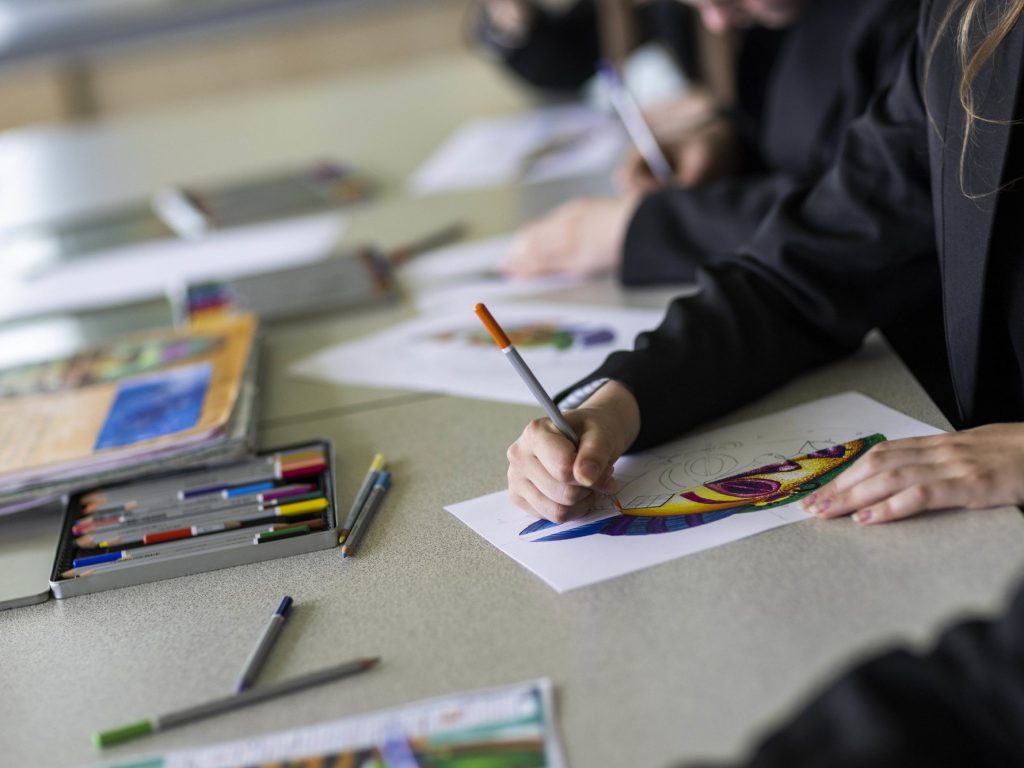
The Art and Design Curriculum has been designed to engage, inspire and challenge students, whilst equipping them with the knowledge and skills to experiment, invent and create their own works of art, craft and design. As students progress through each Key Stage, they should be able to think critically and develop a more rigorous understanding of art and design. They should also know how art and design both reflect and shape our history and contribute to the culture, creativity and wealth of our nation.
In line with the National Curriculum, the Art Department aims to ensure that all students:
In Art and Design, students are taught in classes based on their KS2 Attainment Tests, often in terms of Art these are mixed ability classes. They complete a sequence of projects that follow the Academy’s four Learning Cycle system. Independent home study tasks are designed to support learning in lessons. Literacy is incorporated into lessons through reading aloud of key text, analysing artwork and application of subject-specific terminology whilst producing Artists research and evaluating their own works’ progress.
At Key Stage 3 students progress through a sequence of projects that develop key Art skills such as drawing, painting and imaginative design. They observe and respond to the work of past and contemporary Artists and Art genres.
During Key Stage 4 students complete a Fine Art GCSE course. They refine their technical ability whilst producing coursework using a broad range of materials and techniques in a wide variety of styles. They explore a greater range of Artists and concepts.
Key stage 5 students can complete an A Level in Fine Art and /or Photography. During this time they become fully rounded Artists. Students follow their creative pathway, producing a Personal Study portfolio of work that can lead them into an Art career or onto a degree course.
The Art Department provides dynamic Knowledge Organisers to both inform and inspire students during each cycle. The rigorous assessment gives detailed and high-quality feedback to students, allowing them to continuously progress in every aspect of their work.
At every Key Stage, students are assessed on key tasks in line with the Academy’s Cycle assessments. Students’ grades are constantly reviewed and additional support is given to students in any area that needs development, within and outside of lesson time. Regular work scrutiny and Department meetings identify students or classes that need lesson adaption or a varied approach to fulfil all students’ potential. Throughout the Key Stages, students learn about the diverse range of opportunities within the World of work, through discussions, workshops and trips.
Art is an enriching subject that promotes well-being. During their Art experience at All Saints’ Academy students benefit from the relaxing qualities that Art brings to their lives. They have an increased awareness of their cultural heritage and diversity within the world. It teaches them to become calm and resilient, providing them with opportunities to lose themselves in their work. It enables students to process feelings, reduces stress and anxiety, and increases their self-esteem.
At the end of each Key Stage students have developed their artistic skills and increased their knowledge and understanding of processes and concepts. They have studied a range of creative
practitioners from other cultures and times. Most importantly they have a growing confidence in their own style and artistic identity.
During Key Stage 3 students have developed core Art skills, building a strong foundation to progress into the Key Stage 4 GCSE Fine Art course. Within Key Stage 4 students make rapid progress whilst exploring more advanced techniques and a wider range of materials. At Key Stage 5 students continue to experiment and refine their work, as they specialise within a style/ genre of Art.
At the end of Key Stage 5, the majority of Fine Art and Photography A-level students go on to secure a place at their first choice University, they have gone on to study Degree courses across the country far and wide, in a range of specialisms from Fashion through to Illustration and Game design.
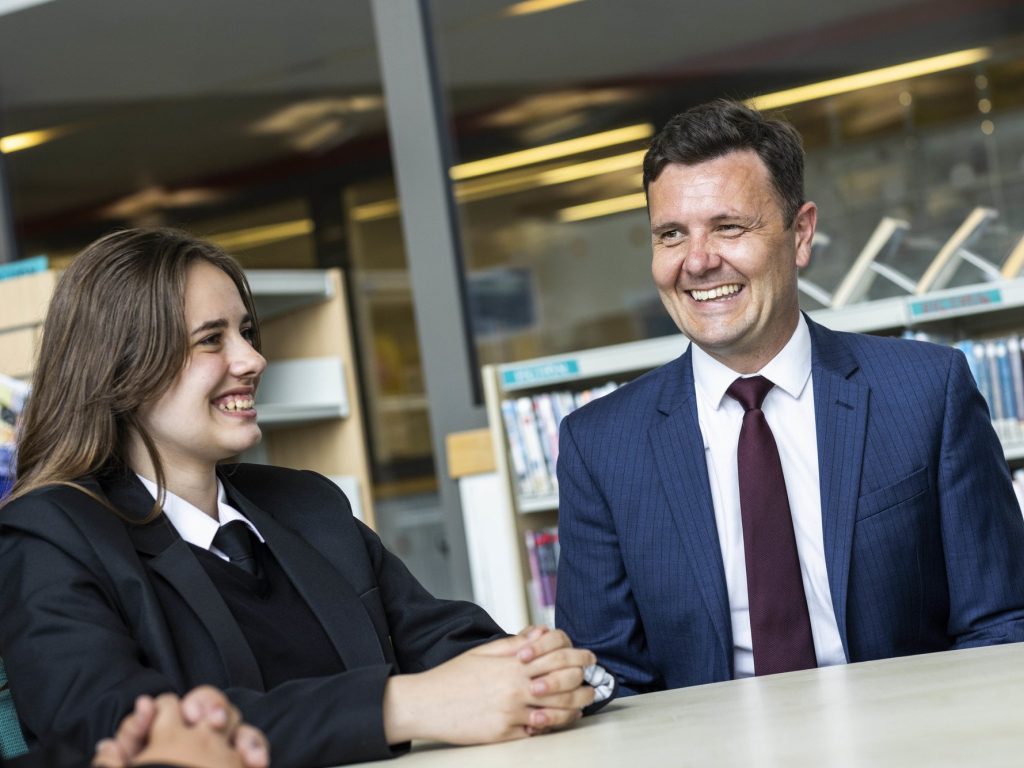
The Business Studies curriculum allows students to realise their God-given potential. Students are provided with an inclusive curriculum programme through vocational and academic pathways. Both options provide an engaging curriculum by developing an understanding of the business world and the importance of future employment opportunities. There are many opportunities within business to develop students’ cultural capital with investigations into local, national and multi-national organisations where students can see how they can achieve their potential and what is required to achieve their goals. This sits alongside partnerships with local businesses to provide opportunities through workshops, trips and talks to develop a deep understanding of the curriculum within the real-world context; this allows students to be prepared for future employment in all sectors of industry.
The business courses have been carefully designed to fulfil our vision. The planning of the courses highlights the core Christian values throughout the topics taught, the case studies used and the discussions within lessons. Students consider ethical and moral decisions made by organisations as well considering the ethical and legal requirements of the way employees are treated by the organisations. Both key stage 4 and 5 qualifications consider the sustainability and environmental impacts of how all different organisations run and the short, medium and long impacts of looking after the natural environment all around us.
The Key Stage 3 curriculum allows all students to engage in an understanding of the significance of business in future life choices. The curriculum is designed to be inclusive and will cater for all students’ needs regardless of ability or SEND. The Key stage 3-curriculum supports citizenship as well as using prior knowledge for the EBacc subjects to develop students’ understanding of Business Studies.
Key stage 4 curriculum provides students with the opportunity to gain an insight into the core business areas of business activity (including entrepreneurship), production, marketing, finance and human resources. The courses, OCR Level 2 Business Enterprise and Marketing or the Eduqas GCSE Business Studies course provide students with an understanding of key terms, how businesses run and the impacts of decisions made by the owners or managers.
Key stage 5 offers students the opportunity to develop a holistic approach to business by investigating strategic and tactical decisions and how they impact the different business functional areas. The courses, OCR Level 3 Business and Equas A Level Business Studies build on understanding from Key Stage 4 by allowing students to provide insightful analysis and evaluative conclusions on business concepts.
To ensure the curriculum responds to changes in the business world, the department actively engages in continuing professional development with experienced staff being assessors for exam boards and contributing to the Gloucestershire Business Teachers Network, where best practice is shared and discussed.
Business Studies students can choose the vocational or academic pathway at Key Stages 4 and 5. The choice of pathway allows all students to access courses based on their strengths and interests. Students have the opportunity to develop their understanding of business principles. The vocational pathway is an applied course whereas the academic pathway considers the theoretical perspective of the running of a business. The vocational pathway develops students’ interpersonal skills as well as independence and communication skills through completing coursework whereas the academic pathway embeds analytical and evaluative skills and judgements on businesses. The courses at Key Stages 4, and 5 are designed to broaden students’ understanding of the business world and the employment opportunities that are available to them.
Students are offered enrichment activities by external organisations such as Young Enterprise and the Tenner Challenge. These activities provide students the opportunity to develop their interpersonal skills and relate them to the theory developed in the classroom to set up new businesses. Students work with local organisations which allows an insight into the practices as well as provides strong links with local employers.
Literacy is embedded within business studies. The Academy’s literacy policy is used to include reading and reading aloud, writing and speaking. Students are routinely expected to discuss and communicate their ideas about current business affairs and develop their extended writing skills. Business Studies also develops numeracy including teaching students specific mathematical concepts and providing them with the opportunities to select, use, evaluate and communicate mathematical ideas.
Students are expected to complete independent study every week, which can include qualitative and qualitative exam questions. Students must conduct independent investigations into business current affairs, which will develop their cultural capital, wider knowledge and understanding of the changing business environment.
The Academy’s Principles of Teaching are followed to plan and deliver engaging lessons. The curriculum ensures lessons are sequenced so students can use prior knowledge from previous teaching and learning cycles. The use of different questioning techniques on key knowledge is applied and students are routinely asked to recall previous knowledge as well as apply their knowledge to case studies. Scaffolding exam questions and modelling answers support the development of writing and exam skills.
Using the teaching principles allows effective medium- and long-term planning for cycles 1-4, this allows sustained progress to be made. Each cycle is based upon a key business principle which concludes with the assessment completed in assessment week. Each cycle also has a planned mid-cycle assessment to check progress intermittently during the cycle. The final week of each cycle is used to consolidate learning from earlier in the year to help students remember the longer-term content ready for the end-of-year examinations. In the final term of each year, students will complete these examinations which will combine aspects of all the learning completed over the year.
Students’ knowledge of key concepts and business ideas is generally strong. This is due to the use of knowledge organisers in supporting students’ understanding of key terms for each cycle. The lessons are planned to include engaging activities based on assessment learning objectives and real-world situations. This alongside the revision for end-of-cycle assessments provides students with confidence in completing formative and summative assessments which results in students being broadly in line with their target grades.
Business Studies naturally provides students with an opportunity to understand different employment and higher education opportunities, which is highlighted in the human resource element of the course. Students consider the different employment routes and the university options. An increasing number of Key Stage 5 students are opting to study a business-related course at University such as Finance and Accounting, Marketing or HR Management or apply for a business-related apprenticeship such as Business Administration.

In designing our Computing curriculum for Year 7 through to Year 13 students, we ensure the following aspects of the curriculum are embedded to ensure all students can access the curriculum and most importantly, make progress. The curriculum at KS3, KS4 & KS5 is ambitious to give all learners, particularly the most disadvantaged, SEND and those with high learning needs, the knowledge and cultural capital they need to succeed in life. At KS3, we select and adapt the content to meet the needs of the students and teachers and have consistently engaging lessons which are accessible to all students. Students are not held back by examination constraints, which has enabled us as a department to work collaboratively in striving for success with all. We ensure that the learning in the classroom is not just about delivering a programme of study, whilst focussing on the main considerations:
Our intentions also go beyond the learning of the classroom, and we invest in our learners to allow them to:
Through our varied teaching approach and use of relevant and current resources, we will encourage our own developed model of 5 key thinking skills for success in Computing. As well as being taught to read, write and talk about Computing with confidence and fluency, our students will learn to think critically; concurrently; creatively; collaboratively; and computationally. We believe that these skills will inspire confidence in our students to take on the many types of challenges that formal assessment questions pose and, therefore, improve the chance for their examination success.
Our curriculum aims to prepare our students for their future as digital natives, ready for a global jobs market in which computing technologies will play a fundamental part in the local economy and will support the growth of the ‘Golden Valley’ development and the established GCHQ government agency, becoming the heart of the UK’s Cyber Industry.
Our students will study Computing and Computer Science techniques and technology throughout Years 7 to Year 9 with the level of content difficulty gradually being increased to give students a firm foundation in the key concepts of the Key Stage 4 GCSE Computer Science course. At Key Stage 5, we offer A Level Computer Science as a full 2-year A Level course. We deliver all our courses (KS3, GCSE & A Level) with a variety of recognised pedagogical techniques including, but not limited to: Rosenshine’s Principles; blended learning and “flipped” learning. Teachers and students will make use of state-of-the-art computer suites, audio-visual resources, and respected online teaching resources to appeal to a wide range of student learning sensitivities. Our curriculum also makes space for students to undertake a selection of creative projects that involve selecting, using, and combining multiple applications, preferably across a range of devices, to achieve challenging goals, including collecting and analysing data and meeting the needs of users. We have an ambitious curriculum to give all learners particularly the most disadvantaged, SEND and those with high needs the knowledge and cultural capital they need to succeed in life.
We can select and adapt the content to meet the needs of the students & teachers, whilst ensuring that the curriculum is engaging and accessible to all students. We have developed a consistent approach to learning, assessments and student reflection and collaborate and communicate effectively to share best practices. We regularly review ourselves against the Academy Teaching Principles to minimise complacency and instil a culture of consistent improvement. The curriculum is enhanced by a wide variety of in-house & co-curricular activities which are offered by our team of staff, and in conjunction with local businesses and government agencies such as CyNam, CyberFirst, ioActive, NCCE, Microsoft, and GCHQ along with a selection of work-related career opportunities at KS5. Students in KS3 and KS4 are entered into yearly Data Face, National Cyber, Girls in Cyber and Computational Thinking Challenges which excite their passions further. This will develop their collaboration skills with other students in and beyond their own Academy environment, promoting soft skills which are crucial to success for Computer Scientists of the 21st Century.
The impact of our curriculum at Key Stage 3 has captured the imagination of our students resulting in the number of students opting for Computer Science increasing year on year. The increased popularity of A Level at Key Stage 5 has been underpinned by increased uptake at Key Stage 4 in GCSE Computer Science and so we expect the growth to continue. Onward movement into higher education study in Computer Science at university has started and our students are well equipped to do so at the end of Key Stage 5. The breadth and depth of opportunity in our Computing curriculum is developing students who strongly consider working with computer technologies in their future careers as well as further study beyond the Academy age. This is driven by regular career drives and links to the world of work, through our local partners and emerging Golden Valley development.
The experience of participating in the new Key Stage 3 curriculum, including extensive enrichment opportunities and additional teaching time, will prepare our students even more effectively for the challenges of Key Stage 4 and 5.
Computer Science KS3 Curriculum Plan
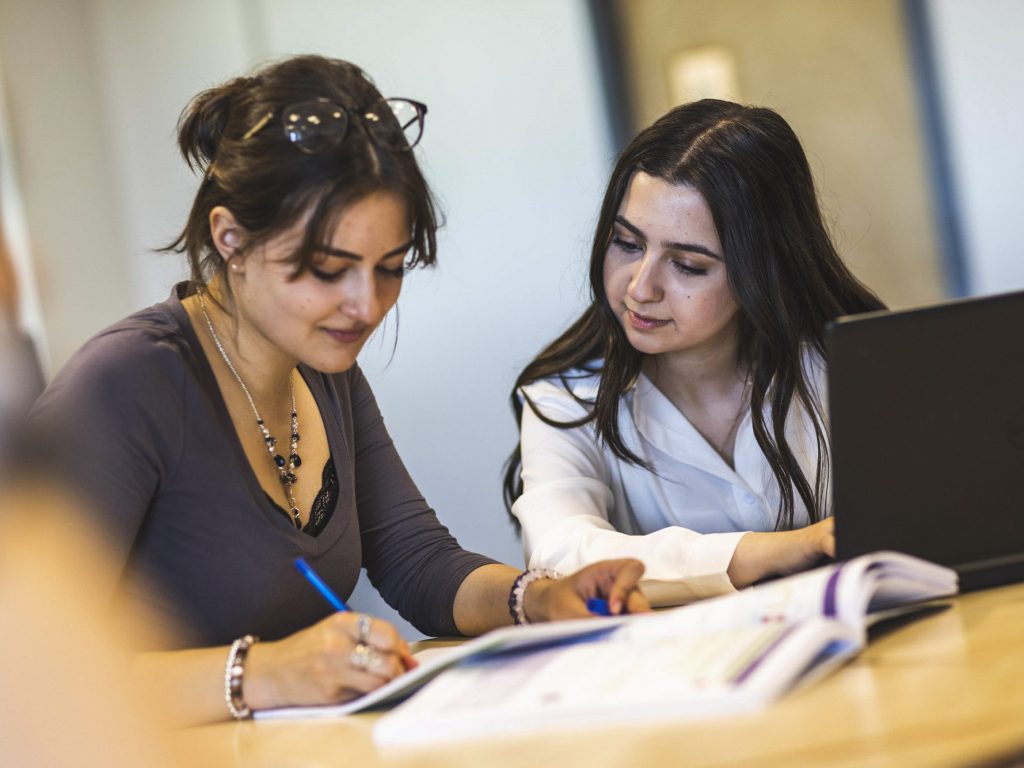
L3 Applied Criminology Diploma
Criminology is a new and exciting course that not only looks at patterns and trends within criminal behaviour but also explores how individuals are punished through the criminal justice system. If you love your crime documentaries and are interested in what motivates individuals to commit crimes, then this is the course for you. The Level 3 Applied Diploma in Criminology course is taught over two years and will accrue the same equivalent UCAS points as one A level.
UNIT 1: Changing Awareness of Crime (internally assessed). You will explore how crime reporting impacts the public perception of crime and criminals. You will then go on to study how campaigns are used to bring about change and plan a campaign of your own.
UNIT 2: Criminological Theories (external assessment) You will discover and assess all the theories that have been put forward to explain why crime occurs.
YEAR 13 UNIT 3: Crime Scene to Courtroom (internally assessed) You will gain an understanding of the process of criminal investigations. You will then go on to learn about the prosecution of suspects and be able to review criminal cases.
UNIT 4: Crime and Punishment (external assessment) You will study every aspect of the criminal justice system and the types and purposes of punishment in England & Wales.
We offer enrichment activities within the Faculty of Social Sciences. These include onsite workshops hosted by different legal professionals and Universities and a trip to visit a local crown court.
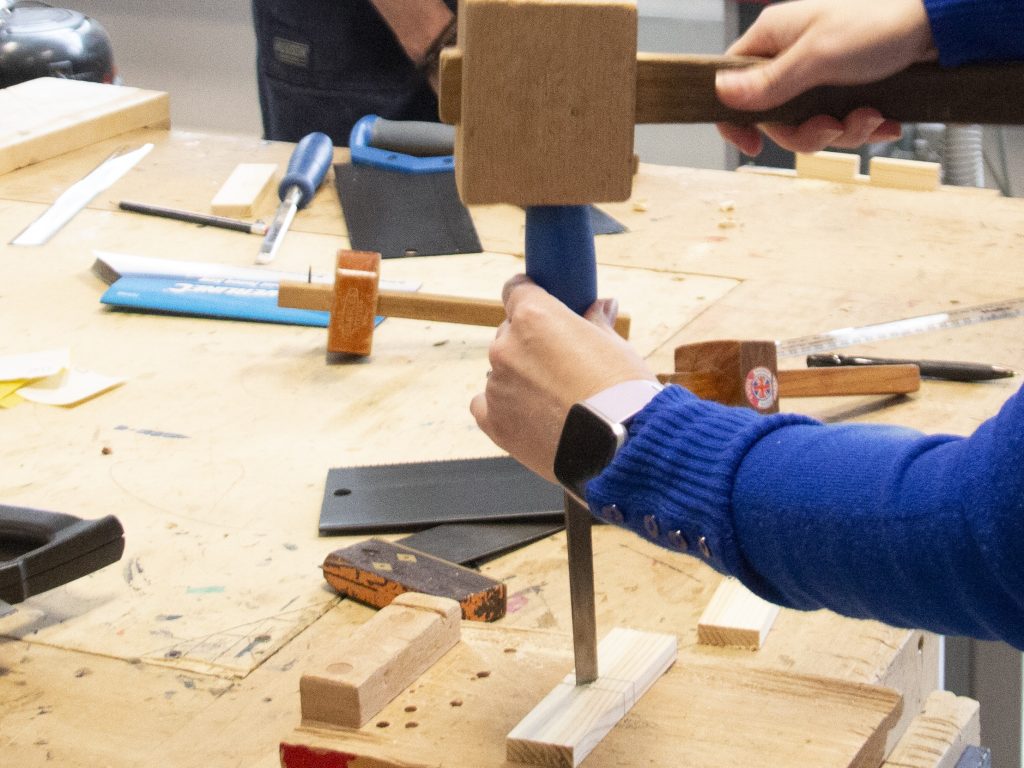
The Design and Technology Curriculum has been designed to inspire and enable students to design and make products that solve real and relevant problems within a variety of contexts, considering their own and others’ needs, wants and values. Drawing on disciplines such as mathematics, science, engineering, computing and art. Students learn how to take risks, becoming resourceful, innovative, enterprising and capable citizens. Through the evaluation of past and present design and technology, they develop a critical understanding of its impact on daily life and the wider world. High-quality design and technology education makes an essential contribution to the creativity, culture, wealth and well-being of the nation.
In line with the National Curriculum, the Design Technology Department aims to ensure that all students:
Students are taught Resistant Materials in mixed-ability groups. Projects have a strong focus on different elements of graphic design such as isometric drawing, perspective drawing and rendering designs to a high standard. Curriculum Organisers are used to support learning in lessons, communicating key knowledge and explaining techniques. The curriculum is a mix of practical lessons alongside supporting theory. Independent home study tasks are designed to support learning in lessons. Literacy is incorporated into lessons through reading aloud key text, analysing briefs and application of subject-specific terminology in the correct context.
At Key Stage 3 students complete design and make projects. They design products based on research carried out. Students learn the importance of skills such as accurately marking out, joining methods and the aesthetics of a product as well as the use of modern technologies to manufacture products alongside traditional hand skills. Students have the opportunity to evaluate their designs, making use of technical terminology.
At Key Stage 4 students study AQA GCSE Design Technology. Students complete an individual NEA project and an externally assessed examination. Students following the GCSE course study a broad range of materials including woods, metals, plastics and fabrics and the manufacturing processes associated with them. They learn about the work of specific designers and design companies such as James Dyson, Apple, Braun and Alessi. In preparation for completing the NEA task throughout the course, students complete practice projects to ensure they are equipped with the skills needed to be successful such as writing a brief and specification, technical drawing and rendering skills and application of theoretical knowledge related to materials and manufacturing processes. Maths is also a key part of the course with this aspect being worth 15% of the final examination mark.
At Key Stage 5 students complete an A Level in Product Design. Students write their own briefs to solve a genuine problem for an identified client. They further develop their understanding of industrial processes and the work of a range of influential designers across time. The course is taught as a mixture of exam theory and NEA completion, with a mock NEA being completed in year 12. As part of their NEA students manufacture a fully working prototype of their final design solution.
At every Key Stage, students are assessed on key tasks in line with the Academy’s Cycle assessments. Students’ grades are constantly reviewed, and additional support is given to students in any area that needs development, within and outside of lesson time. Regular work scrutiny and Department meetings identify students or classes that need lesson adaption or a varied approach to fulfil all students’ potential. Assessments are used to inform the planning and delivery of lessons and to monitor progress. Through this, misconceptions are identified and addressed to ensure good progress is made.
At Key Stage 3 students complete identified pieces of work in each cycle to demonstrate their learning and progress.
Students in examination groups particularly enjoy the practical element. GCSE Design Technology enables students to develop key life skills and to help them make informed choices as consumers later in life. The course has a strong focus on environmental issues and the role of both the designer and consumer within this, allowing students to make moral and ethical choices about their purchasing and use of products.
Students wishing to study the subject in higher education could complete engineering degrees in many different disciplines such as Mechanical, Civil, chemical or environmental engineering. Or a degree in Product Design could be completed.
For students wishing to follow a more vocational route, there is a range of apprenticeships that link to an interest in design technology, including junior product designer, theatre set carpenter, civil engineering technician and plumbing.
KS3 Design Technology Curriculum
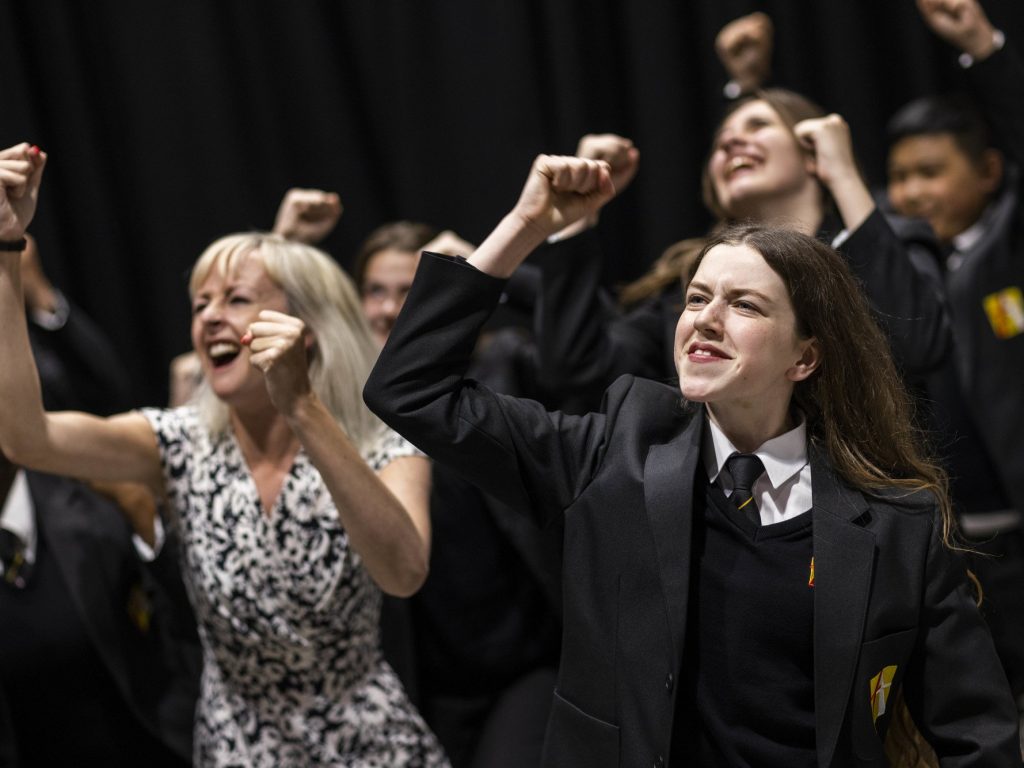
Our curriculum has been designed to ensure that all students can:
Reading is prioritised within the English Curriculum where students are fully immersed in full texts from year 7 onwards and are encouraged to read critically from the start; making judgments about and asking questions about the texts that they study. Alongside this, our school vision, inspired by John 10:10, is an essential component in the decisions we make for the curriculum, choosing texts and tasks wherever possible that can help to bring the vision to life every day in the classroom.
The curriculum is ambitious and broad ensuring all students have the knowledge, skills, and confidence to move effectively to the next stage of their education. All students will study a range of literature genres: plays (including Shakespeare), poetry, short stories, graphic novels and full novels to improve enjoyment and confidence in reading. We are continuously developing our English curriculum, including through work with our local primary schools, to guarantee that it is relevant, challenging, and inspiring; at present, we have our most diverse curriculum to date including texts from other cultures, classic works from the English Cannon and modern Young Adult fiction. Students will also be exposed to texts with mature and sensitive subject matter that will elicit discussion and promote effective speaking and listening skills to help build confidence in all students regardless of their starting point.
Inclusivity is key in our curriculum design; we intend for all students to be able to access and be challenged by their lessons, regardless of ability or SEND need, to ensure they leave with the knowledge and skills to be able to succeed in life. The chosen topics are adapted throughout KS3, with the top set having a different text to study. The curriculum is adapted and designed to maximise progress for all, offering support and increased independence as appropriate through extension and foundation schemes of work. Due to the lack of tiers in the GCSE examination for English, all students have the potential to achieve highly in the subject and are well prepared for this through KS3 through vigorous and varied assessment.
Students are grouped by ability in Year 7 following the completion of their Key Stage 2 Standard Attainment Test and in English we also run a baseline assessment early in Year 7 to ensure that initial set allocation is the most appropriate for each student.
In Key Stage 3, our curriculum is in line with the National Curriculum and is coherently planned and sequenced to allow students to study a broad curriculum in terms of content and skills. It builds on skills and concepts that students learned at KS2 and gives students the knowledge and skills to move to their next steps with confidence. Assessments are carefully planned to be challenging enough to build resilience without disengaging students with SEND and take a range of assorted styles and forms. Regardless of band, all students will study full texts and be assessed at the middle and end of each cycle to ensure close monitoring of progress. Assessments are not only Reading and Writing based but several Speaking and Listening skills are also assessed at KS3 to help promote students’ oracy. All students in KS3 are enrolled on the Accelerated Reader Programme to help close gaps between chronological and reading ages and to inspire a love of reading for all.
In Key Stage 4, all students work on the GCSE content for both English Language and English Literature. Over the course, students will study the Literature texts and the skills needed for English Language, which build on the work done at KS3. Students are assessed regularly through full mock examinations and in-class essays to ensure we always understand where students are and what needs improvement. We run a collaborative programme with Cheltenham College (7UP) which our most promising students participate in throughout year 11 to help secure the top grades.
In Key Stage 5, we offer English Literature and English Language A-levels at present with improving outcomes year after year. In both cases, Year 12 is content-heavy, with Year 13 primarily focusing on coursework and then revision. We also teach retake English Language GCSE for those students in Years 12 and 13 who require it.
Both Key Stage 4 and Key Stage 5 students have the opportunity for extra-curricular theatre trips to see set texts live and many students accept the opportunity to work with both our students and those from our local primary schools to become reading buddies to aid the development of our younger readers.
As a lead department for literacy and in line with the school’s literacy policy, each SoW allows students to regularly read aloud, write extensively and independently and has a planned example of speaking and listening ranging from drama-based in-role tasks to formal discussion and presentation. Teachers in the department consistently mirror good examples of speaking, listening, reading, and writing to become models for the students. Students have appropriate levels of literacy when they leave for the next stage of their development- be it further education, employment, or training. They understand the requirements for their chosen path and have the knowledge and skills to be successful in it.
Cycles 1 to 3 each have a specific focus for study which could be primarily based on Reading, Writing, Speaking and Listening. Each scheme of work is skill and content-based and built around the assessment completed in assessment week. Each cycle also has a planned mid-cycle assessment to check progress intermittently during the cycle to help support the ongoing formative assessment within lessons. The final week of each cycle is used to consolidate learning from earlier in the year to help students remember the longer-term content ready for the End of Year Examinations which all year groups are subject to. In the final term of each year, students will complete these examinations which will combine aspects of all the learning completed over the year.
We offer a range of extra-curricular activities in English, some specific to year groups such as Creative Writing and Spoz Poetry Slam for younger years and Debating and Public Speaking for KS4 and KS5. Others including The Carnegie Shadowing Group are open to students in all years and are becoming more popular each year. Year after year, our links with the Cheltenham Literary Festival grow with our students participating in activities such as Battle of the Books and Words that Burn, both of which allow students to perform at the festival itself.
The quality of teaching within the department is rated as consistently good and outstanding. We have a consistent approach to learning and assessments throughout the team and work collaboratively to ensure the best practice is shared. We regularly review ourselves and each other against the teaching standards to minimise complacency and instil a culture of consistent improvement.
Assessment is used well in English; our mid and end-of-cycle assessment results are used systematically to check understanding and gaps in knowledge which are then used to inform future teaching helping to maximise progress. GCSE results have improved significantly in recent years and are now in line with National Average. A-level results are also improving, and we are immensely proud of our students who go on to study English or journalism at degree level.
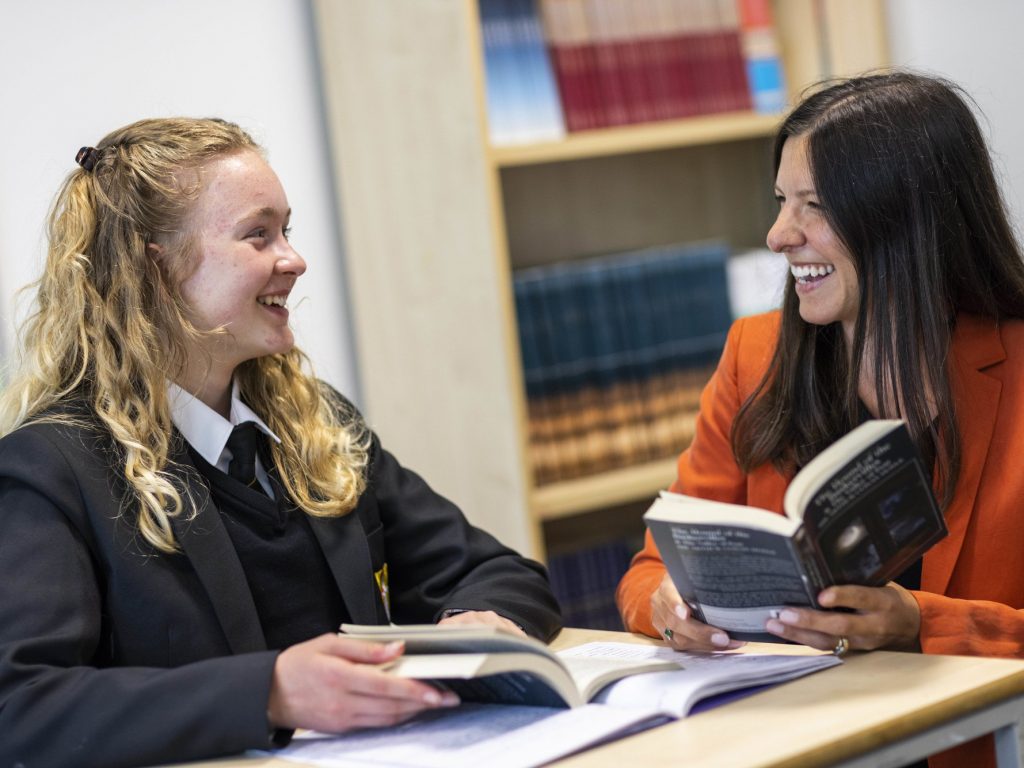
Our curriculum has been designed to ensure that all students can:
Reading is prioritised within English Curriculum where students are fully immersed in full texts from Year 7 onwards and are encouraged to read critically from the start; making judgments about and asking questions of the texts that they study. Alongside this, our Academy vision, inspired by John 10:10, is an essential component in the decisions we make in for the curriculum, choosing texts and tasks wherever possible that can help to bring the vision to life every day in the classroom.
The curriculum is ambitious and broad ensuring all students have the knowledge, skills and confidence to move effectively to the next stage of their education. With this in mind, all students will study a range of literature genres: plays (including Shakespeare), poetry, short stories, graphic novels and full novels to improve enjoyment and confidence in reading. We are continuously developing our English curriculum, including through work with our local primary schools, to guarantee that it is relevant, challenging and inspiring; at present have our most diverse curriculum to date including texts from other cultures, classic works from the English Cannon and modern Young Adult fiction. Students will also be exposed to texts that will elicit discussion and promote effective speaking and listening skills to help build confidence in all students regardless of their starting point.
Inclusivity is key in our curriculum design; we intend for all students to be able to access and be challenged by their lessons, regardless of ability or SEND need to ensure they leave with the knowledge and skills to be able to succeed in life. With this in mind, the chosen topics are differentiated throughout Key stage 3, with each band having a different text to study. The curriculum is adapted and designed to maximise progress for all, offering support and increased independence as appropriate through extension and foundation schemes of work. Due to the lack of tiers in the GCSE examination for English, all students have the potential to achieve highly in the subject and are well prepared for this through Key stage 3 in which all assessments are GCSE style.
Students are grouped by ability from Year 7 following the completion of their Key stage 2 Standard Attainment Test and in English we also run a baseline assessment early in Year 7 to ensure that initial set allocation is the most appropriate for each and every student. Students in the Foundation band have extra lessons in English which are primarily focused on improving reading age through extra time with Accelerated Reader and Lexia.
In Key stage 3, our curriculum is in line with the National Curriculum and is coherently planned and sequenced to allow students study a wide curriculum with some depth. Assessments are carefully planned to be challenging enough to build resilience without disengaging students with SENDs. Regardless of band, all students will study full texts and be assessed at the end of each cycle with a GCSE style question/s. All students in Key stage 3 are enrolled onto the Accelerated Reader Programme to help close gaps between chronological and reading ages and to inspire a love of reading for all.
In Key stage 4, all students work on the GCSE content for both English Language and English Literature. Over the course, students will study the Literature texts and the skills needed for English Language, which build on the work done at Key stage 3. Students are assessed regularly through full mock examinations to ensure we understand at all times where students are and what needs improvement.
In Key stage 5, we offer English Literature A-level at present but do have the skills and passion in the department to run English Language and Literature A-level which we have successfully in the past. In both of these cases, Year 12 is content heavy, with Year 13 focusing on coursework and then revision. We also teach retake English Language GCSE for those students who require it.
As a lead department for literacy and in line with the Academy’s literacy policy, each cycle allows students to regularly read aloud, write extensively and independently and has a planned example of speaking and listening ranging from drama based in-role tasks to formal discussion and presentation. Teachers in the department consistently mirror good examples of speaking, listening, reading and writing to become models for the students. Students have appropriate levels of literacy when they leave for the next stage of their development- be it further education, employment or training. They understand the requirements for their chosen path and have the knowledge and skills to be successful on it.
Cycles 1 to 4 each have a specific focus for study which could be primarily based on reading, writing, speaking and listening or a combination of skills and begin with a pre-knowledge check to gauge students’ understanding of the topic before beginning the scheme in earnest; this ensures that teachers are able to adapt lessons/ information as appropriate to maximise learning time. Each scheme of work is skill based and built around the assessment completed in assessment week. Each cycle also has a planned mid-cycle assessment to check progress intermittently during the cycle. The final week of each cycle is used to consolidate learning from earlier in the year to help students remember the longer term content ready for the End of Year Examinations which all year groups are subject to. In the final term of each year, students will complete these examinations which will combine aspects of all the learning completed over the year.
Remote education is well integrated within the course and is something that all colleagues in the department are comfortable delivering. The sessions are well implemented and in line with what is happening in the classroom to avoid any students being disadvantaged by it.
We offer a range of extra-curricular activities in English, some specific to year groups such as Year 7 Creative Writing and Poetry Slam and Debating for Key stage 4 and Key stage 5 in collaboration with RE department. Others including The Carnegie Shadowing Group is open to students in all years and is becoming more popular each year. We also aim to increase students’ cultural capital through regular theatre trips.
The quality of teaching within the department is rated as consistently good and outstanding. We have a consistent approach to learning and assessments throughout the team and work collaboratively to ensure the best practice is shared. We regularly review ourselves and each other against the teaching standards to minimise complacency and instil a culture of consistent improvement.
Assessment is used well in English; our mid and end-of-cycle assessment results are used systematically to check understanding and gaps in knowledge which are then used to inform future teaching helping to maximise progress. GCSE results have improved significantly in recent years and are now in line with National Average. A-level results are also improving and we are very proud of our students who go on to study English or journalism at degree level.
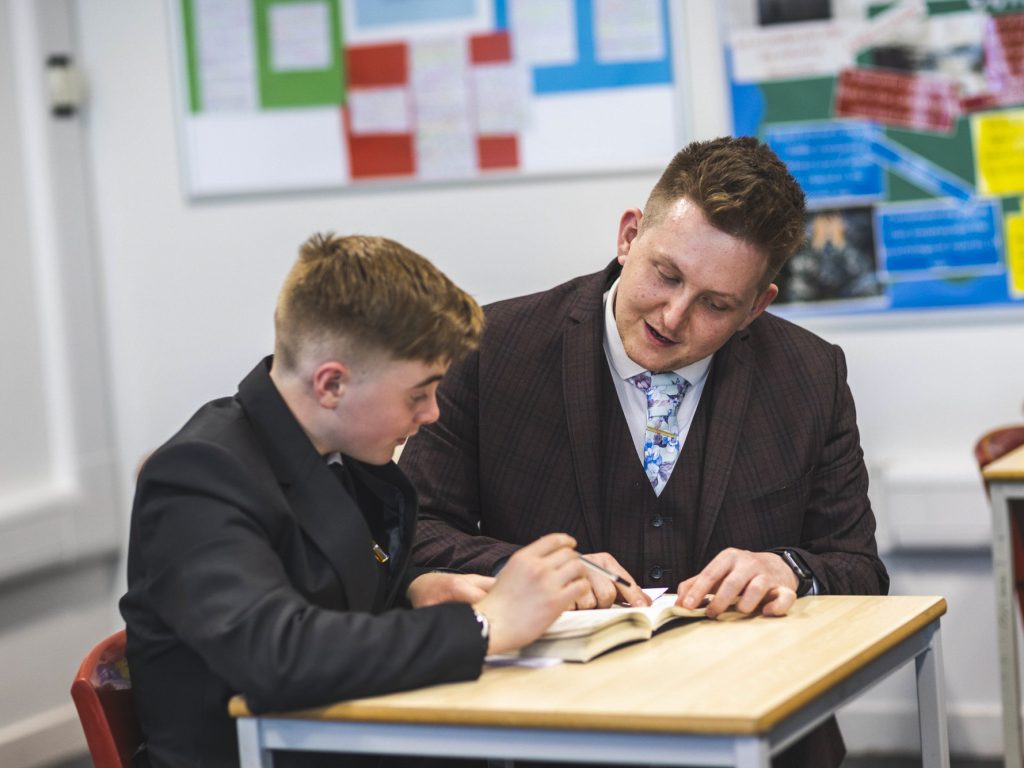
Our curriculum has been designed to ensure that all students can achieve the following across Key Stages 4 and 5;
In addition to this our school vision, where every member of our extended family realises their God-given potential, inspired by John 10:10. Jesus said ‘I have come so you may have Life in all its fullness’ informs and shapes the curriculum in both Film Studies and Creative Media, choosing texts and tasks wherever possible which allow all learners to achieve their true potential.
By taking Film Studies at GCSE students can develop knowledge and understanding of the ways in which meanings and responses are generated through film. They will study a contrasting, culturally diverse range of films from different national contexts, as well as gaining an appreciation of film as an aesthetic medium. Learners will also gain an understanding of how films reflect the social, cultural and political contexts in which they are made, as well as the relationship between film and film technology over time.
By choosing Film Studies at A-Level all students can develop knowledge and understanding of a diverse range of films, including documentary, film from the silent era, experimental film and short film. In addition students learn about film and its key contexts including social, cultural, political, historical and technological contexts. Students will learn a variety of critical approaches which enable them to understand how films generate meanings and responses for audiences.
Students develop an understanding of the media industry through analysing media representations and pitching and producing media projects. They investigate the media industry, looking at the influences of technology and audiences and how media is affected by these factors. Students also develop research skills through their investigations which then inform their own media production. Learners study how to analyse and deconstruct media representations and develop the communication and planning skills that allow ideas to be produced.
The course will introduce students to a broad range of films from around the world as well as give them a historical perspective on film. The US films they focus on, for example, will include mainstream films from the past – films produced in the 1950s and late 1970s and 80s, two distinct phases of Hollywood’s development. Through comparing these films, learners will see how genres change, how the
contexts in which films are produced affect films and how elements such as cinematography and editing change and develop. More recent US film will be explored through independent productions – films produced outside the mainstream, which have allowed their filmmakers to explore less conventional topics and issues. Although many learners’ experience of cinema is likely to be dominated by US film the course offers the chance to explore film produced outside the US – in Europe, including the UK, South Africa and Australia giving learners a truly global perspective.
The A-Level Film Studies course introduces A level learners to a wide variety of films in order to broaden their knowledge and understanding of film and the range of responses films can generate. This specification therefore offers opportunities to study mainstream American films from the past and the present as well as a range of recent and contemporary British films, American independent films and global films, both non-English language and English language. The historical range of film represented in those films is extended by the study of silent film and significant film movements so that learners can gain a sense of the development of film from its early years to its still emerging digital future. Studies in documentary, experimental and short films add to the breadth of the learning experience.
Students take four Units which they are allowed to resubmit once each if required. In Unit 1 (Media Representations) students study a range of media from different sectors in order to explore how meaning, messages and values are constructed through formal and stylistic elements. This unit will provide a foundation for understanding semiotic analysis and the ‘reading’ of media texts. This Unit is assessed by an on-line exam marked by Pearson. In Unit 4 (Pre-Production Portfolio) Learners study the requirements of planning and delivering a digital media product, carrying out essential pre-production tasks and creating a pre-production portfolio, which is assessed internally. Unit 8 (Responding to a Commission) considers the commissioning process and how media producers respond to clients by generating ideas using a range of skills; this is assessed over two days controlled assessment and marked externally. Finally Unit 10 (Film Fiction) focuses on the process of producing a short narrative film or film extract that uses generic conventions, and is assessed internally.
The quality of teaching within the department is rated as consistently good. A consistency of approach is enabled by the relatively small department, with Eduquas approved materials providing the foundation of much of the schemes covered in both Key Stage 4 and 5.
Assessment is used consistently in Film Studies in both GCSE and A-Level; mid and end of cycle assessments are used to check understanding and gaps in knowledge which then inform teaching helping to maximise progress. In Creative Media BTEC quality assurance is achieved by external moderation which has consistently verified the accuracy of assessment and task-setting. GCSE Film Studies results have been consistently at or just above National Average, and A-Level and BTEC Creative Media results have also been consistently strong with many going on to study further at University in Film Studies, Film Production and other Media based degrees. Indeed the Key Stage 5 courses have given students the ideal platform for further study.
‘I became interested in continuing with Film and Television at university because of how much I loved learning about it at All Saints. The work I did on documentary film for A-Level was invaluable for my first module at University and gave me a brilliant start to the course. I think the moment you don’t find learning something a chore, you owe it to yourself to pursue it. Thanks to Mr Wright’s lessons, I found a lesson I really connected to and could express myself with. Having such a passionate teacher helped me achieve my goals at University’
‘During my time at All Saints Sixth Form I was offered invaluable opportunities to work with external clients to film and edit content for them, as well as create my own documentary films. The teachers were full of support and I was able to evolve my understanding of various industry practices as well as choosing the right next steps for me.’
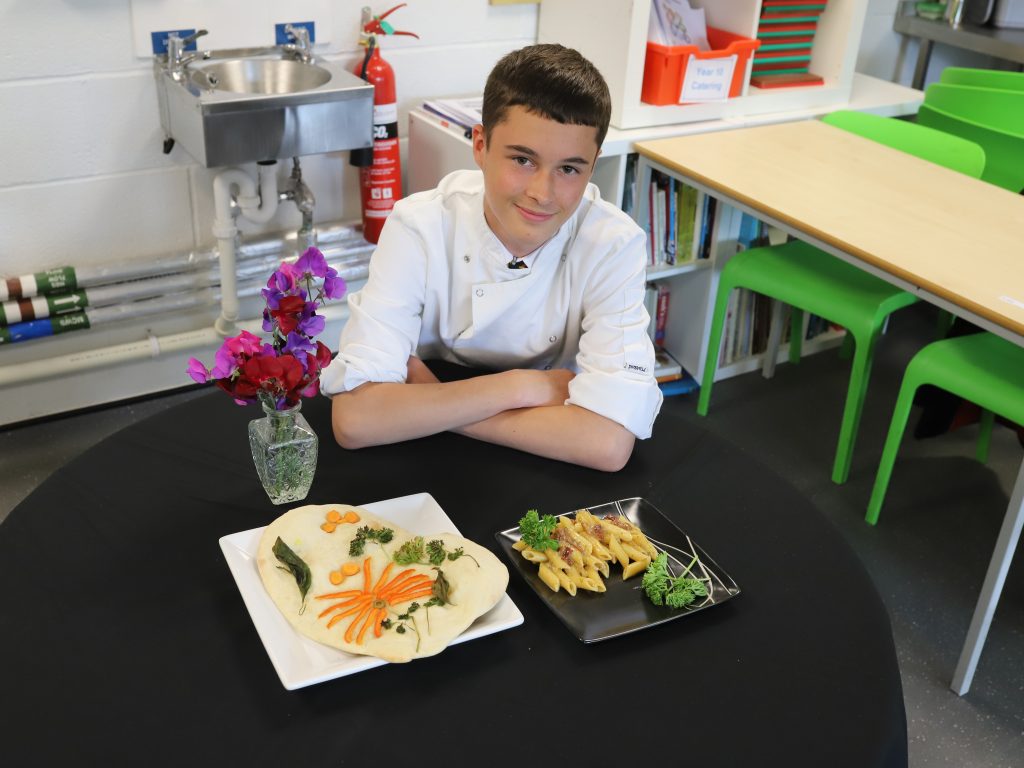
The curriculum at all key stages has been designed to be inclusive and develop students’ life skills as well as excel in examination courses. The curriculum is reviewed regularly to ensure it remains current and relevant, keeping up with changes and trends within the industry. The academy’s core Christian values of Love, Peace, Respect, Reconciliation, Service and Justice are embedded through the curriculum. Students are taught to respect others’ beliefs whether they be religious, ethical or otherwise. Environmental issues related to food production are explored across all key stages, encouraging students to respect the environment and recognise the impact of their food choices.
At Key Stage 3 students are taught the basics of good nutrition and the importance of a healthy lifestyle. They are given the skills to make informed choices as consumers later in life. Practical work focuses on students developing the skills needed to feed themselves and others nutritious, cost-effective dishes.
Examination groups are taught a wide range of increasingly complex dishes, there is also a strong focus on the skills required for a range of jobs within the industry. Students learn about jobs within both areas of the sector including managerial roles such as hotel managers and executive chefs, the range of different chef stations, roles of wait staff and housekeeping, to specialist positions such as Sommeliers. NEA-style tasks all have a vocational focus for example students write proposals for dishes from the position of a sous chef applying for a new position. Examination content is taught through a range of different activities making use of adaptive teaching to support the needs of all students.
Students are taught in mixed-ability groups. Curriculum Organisers are used to support learning in lessons and to communicate key recipes. The curriculum is a mix of practical lessons alongside supporting theory. Independent home study tasks are designed to support learning in lessons. Literacy is incorporated into lessons through reading aloud key text, analysing briefs and application of subject-specific terminology in the correct context. Students are taught how to weigh and measure and understand the different units of measurement and what food types they should be used for. Timekeeping is an essential part of practical lessons and students use analogue clocks to monitor their time in lessons to safely produce cooked outcomes.
At Key Stages 4 and 5 lessons have a strong vocational element due to the nature and structure of the courses being delivered. Students continue with a varied curriculum of both theory and practical lessons. Practical skills become increasingly complex, with dishes being presented to industry standards. At Key Stage 5 students take on a more scientific approach to practical work carrying out practical investigations to solve food problems. At both key stages, students continue to develop their literacy skills through the use of subject-specific terminology, including catering terminology such as ‘au gratin’, ‘Bouillabaisse’ and ‘pâtisseur’. Numeracy continues to be developed through the use of weighing and measuring with an increasing focus on the importance of ratios and the use of equipment to ensure accuracy. Students at Key Stage 4 and 5 are required to write timed step-by-step plans to follow when making dishes.
Assessments are used to inform the planning and delivery of lessons and to monitor progress. Through this, misconceptions are identified and addressed to ensure good progress is made. At Key Stage 3, all students learn the skills needed to feed themselves and others nutritionally balanced, cost-effective meals. They gain the knowledge needed to make informed choices as consumers later in life.
Students in examination groups are proud of their developing practical skills and make dishes of high standards, many opting to make use of their own time to further develop their outcomes. In addition to whole Academy assessments at the end of cycles, students are given regular lower stakes tests to monitor their knowledge and understanding. Additional support is put in place in lessons where there are misconceptions. Students are regularly given clear and detailed guidance on their current level and how to improve.
Students at all key stages take pride in their work, especially made outcomes. At Key Stage 3 students take their made outcomes home and are pleased to show their peers what they have made. Students are increasingly commenting on dishes they have made again in the home setting.
Students can continue with further education by completing a wide range of courses covering all aspects of the industry. This could include professional cookery courses at level 3, BSc in Human Nutrition or Nutrition and Dietetics BSc (Hons), Hospitality, Tourism and Event Management BA (Hons) or Tourism and Hospitality Management BA (Hons).
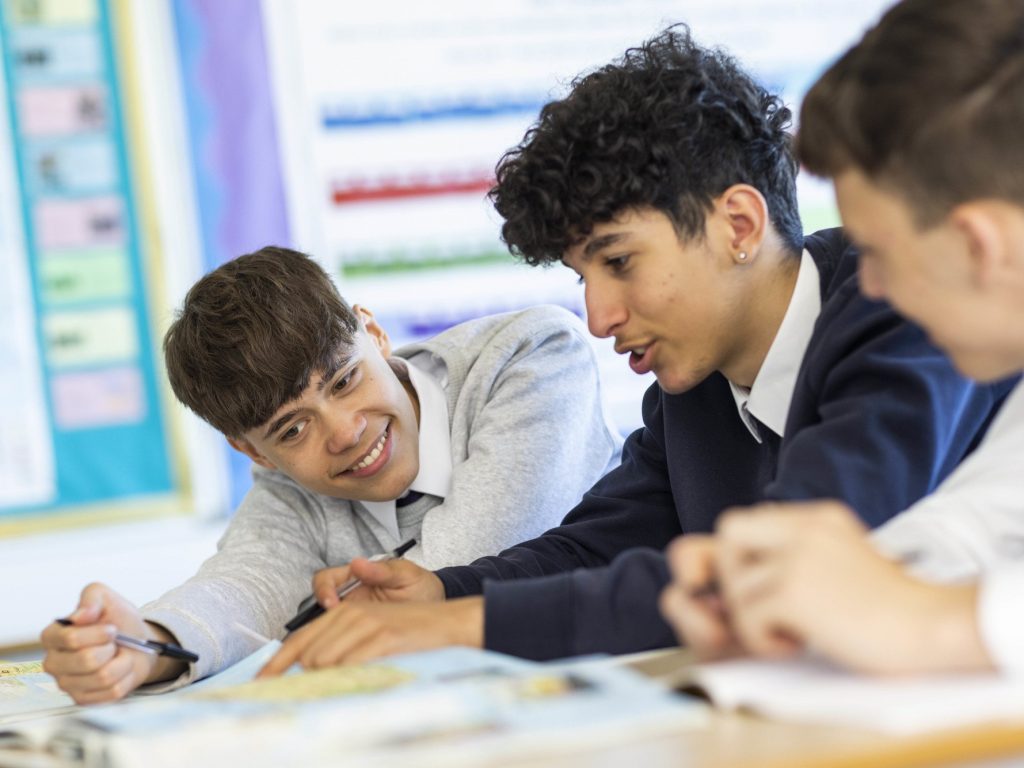
Our Geography curriculum has been designed to ensure that all students can:
The Geography department aims to broaden students view of the world while also expanding their knowledge of how the world works and promoting morals and responsibility. We teach a varied and challenging curriculum which allows students at this level to explore different cultures to promote equality. Students study a diverse range of physical and human topics, on both global and local scales. Geographical skills are taught at the start of Year 7, which gives every student a foundational knowledge of which to build upon through the various key stages. Further skills are embedded and refined during each key stage to allow progression. We promote the wide range of career opportunities Geography can offer within the lessons.
We encourage students to think critically about data, and scientific evidence so that they can make their own decisions on moral and geographical issues. The curriculum focuses on up to date case studies, science and topics of great relevance in today’s world. Throughout the teaching of the curriculum the Academy’s vision and values are apparent.
All staff are incredibly passionate about their subject and want to promote an enjoyment of geography and make each topic accessible to everyone. Lessons, case studies, data and topics are constantly reviewed to ensure that all students are supported and thrive within the subject. Lessons are tailored to the needs of the group so that all students can excel. Formative assessment and teacher assessment allow lessons to be adapted to fit the class and achieve the best outcomes.
The learning is split into 4 teaching cycles per year. Lessons are structured so that key knowledge is learnt, recalled and can then be applied, to help information be retained into students’ long term memory. Each cycle is accompanied by a knowledge organiser to help students in class and at home. This gives students the basic knowledge of each topic as a starting point to build new knowledge upon, before applying what they have learnt. This application of knowledge shows true understanding of key concepts taught, and challenges students.
Staff plan well-structured and engaging lessons to spark students’ interest and allow them to think critically about the information being delivered. Geographical skills are taught in year 7 building upon any previous key stage 2 knowledge. These skills are then interbedded within the teaching cycles to allow students to progress onto the next stage in their academic journey. Each lesson will build upon the next and therefore allows for repetition of knowledge to improve basic recall, while also allowing for students to connect knowledge, systems and processes together. There are opportunities for synoptic learning where knowledge from previous cycles can be applied to new ones. Students are challenged to think about topics on both a local scale and a global scale where appropriate.
Independent home study has been structured to help students recall key information while also giving them the independence to research and discover learning for themselves. Independent home study as an emphasis on knowledge so then application and exam skills can be instructed in the classroom with support.
The impact of our Academy Vision, is seen within the teaching. Students are encouraged to share their ideas and promote these strong values within the wider community. Students are encouraged to think about their actions and how their views might change or differ from others.
Students undergo various formative assessments each cycle, which are reviewed to tailor lessons to the specific group. This allows for misconceptions to be eliminated as well as adding to student’s long-term memory. Personalised target questions are provided after assessments as well as throughout the learning cycle. This allows students review themselves and address their own progress and learning. It enables student to address any misconceptions they have, improve their work or push their understanding and knowledge further.
The evaluation of the quality of teaching shows that lesson quality is consistently good and continues to improve further. Lessons are constantly adapted and updated to ensure that an up-to-date, and varied curriculum is delivered. Lessons contain a wider activity range to challenge students while also supporting the various needs of the students in the class.
Assessment data shows students making progress in Geography. GCSE and A-level results have improved in recent years. A-level students are encouraged to pursue various careers relating to Geographic fields and are encouraged to apply to universities, geographical-based jobs and higher-level apprentices.
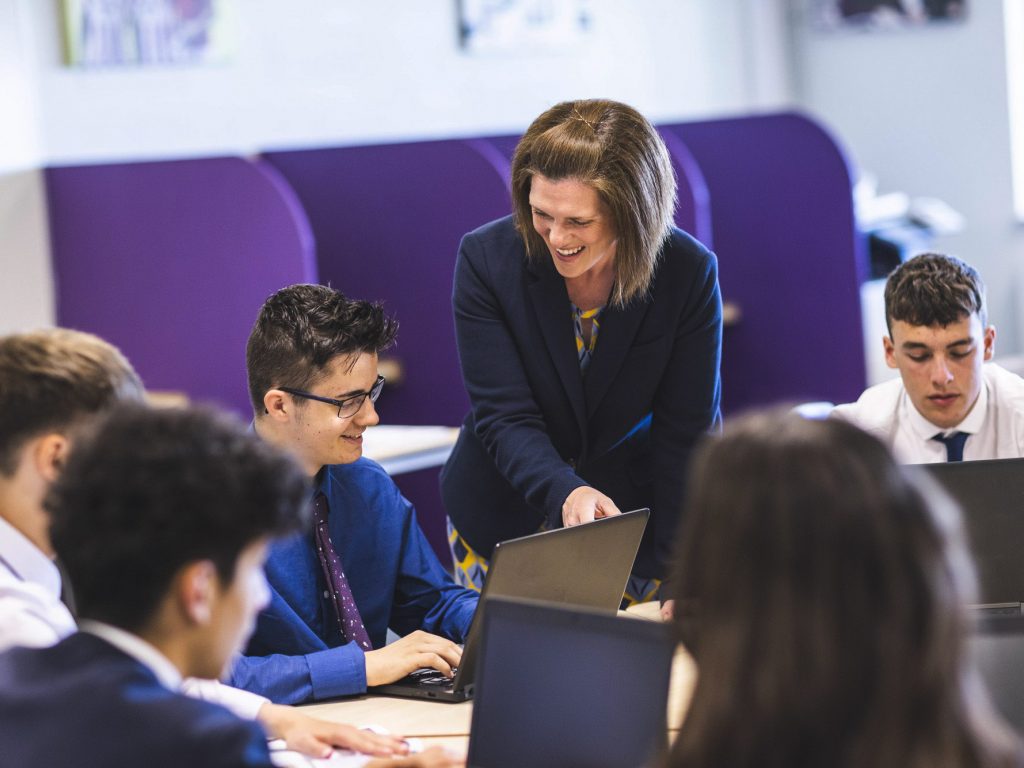
Our Key Skills curriculum has been designed for Year 12 and 13 students to:
Inclusivity is at the heart of our curriculum, enabling us to meet the specific learning needs of all our students. This is deliberately planned into all learning stages with a rich knowledge and skills base for all. A flexible and adaptable approach to teaching and supporting each student (differentiation) ensures success.
Our Key Skills curriculum has been personalised in response to the local career and training opportunities in areas such as retail, hospitality, social care and the voluntary sector.
Enrichment of the curriculum in the Key Skills course includes opportunities for work experience within the timetabled week; personal skills development, the ASDAN Certificate of Personal Effectiveness, and Duke of Edinburgh Award. Students also benefit from running their own small business enterprise café.
Students are grouped by ability from their GCSE qualifications and tutor assessment at the beginning of the course, in order to tailor the course to their needs.
Our curriculum is divided into four Learning Cycles across the year, in line with the academy curriculum model. This approach is designed to divide learning into sections, while students are taught how to learn independently and revise material ready for regular formative assessment. Formative assessment and Nationally recognised exams take place throughout the year on demand. This enables students to build a progressive portfolio of exam certificates and give them confidence to progress to the next level and experience success.
Improving a student’s literacy is a priority for our teaching. Students are taught to improve their skills in reading, writing, listening and speaking with confidence, fluency and understanding. They are taught to give short presentations. Students are expected to read books and newspapers as part of their self-study and maintain a journal of what they have read.
Numeracy is also a key priority of our teaching. Students revise their fundamental number skills and then learn how to apply these skills to everyday problems. The overall curriculum is used to provide opportunities for students to problem solve realistic numeric problems that they will encounter at work and at home.
We have a classroom pedagogical approach, in line with the Academy Teaching Principles. We provide the opportunity for students to experience the positive effects of being responsible for their own learning and decision making within ‘Busy Beans Café which is our Real Work Environment (RWE)
Our cycle assessments are recorded and used to identify progress in learning and areas which require further teaching, across whole class. or individual students. The flexibility of our curriculum plan, which has been running since 2019-20, means that students can progress at their own rate across the academic year when they are ready to be formally assessed and are not held back for an end of year assessment.
We have found that early success in formative assessments at Entry Level encourage and give students confidence to attempt Levels 1 and 2 in Literacy and Numeracy later in the academic year.
Our skill-based programme, combined with work experience and our small business enterprise helps students to develop the skills communications and confidence to progress.
We prepare our students well for their next steps and progression into Further Education, Apprenticeships, further training or employment. The impact of raising academic standards and career aspirations has resulted in an increased number of Key Skills students gaining full time employment, progressing to further education or apprenticeships.
The impact of our Academy Vision, Christian values and broad curriculum offer, results in an Academy family where students feel happy and equipped to express themselves as individuals, have confidence in celebrating their successes and support one another through the challenges they face or may face in the 21st century.

The Academy vision, ‘Where every member of our extended family realise their God-given potential’ inspired by John 10:10 and ‘Jesus said ‘I have come so you may have life in all its fullness’ is routed at the heart of everything we do. Hair and Beauty is a subject that aims to help students understand that it is a vibrant, dynamic and fast-paced industry, offering fantastic employment and training opportunities. It covers many topics that address the academy’s vision as it develops students understanding of the world round them.
At All Saints’ Academy, the Hair and Beauty department currently delivers the Level 1 and Level 2 VTCT Award in Hairdressing and the Beauty Industry. This qualification is designed to offer students the opportunity to experience a broad range of topic areas within the Hair and Beauty sector, in a vocational context. Throughout Key Stage 4, students are introduced to a variety of issues and debates and are equipped, via various means, to not only report and discuss them but practically apply their knowledge to a wealth of Hair and Beauty scenarios. The department is committed to developing each student holistically and the vocational nature of each qualification ensures both adaptability and accessibility for all.
The aim of the Key Stage 4 curriculum for Hair and Beauty is to teach and encourage students to ask questions about the Hair and Beauty industry. Students need to be analytical and critical of the research that they cover in their specifications. The study of Hair and Beauty allows students insight into their preferred sector supporting progression to further or higher education and, ultimately, employment. The course’s concepts allow students to construct arguments and support them in becoming analytical thinkers who can question human motivation and society with skill and confidence.
Hair and Beauty is an optional subject and as a result, students of all abilities will be in the same class. The department follows the Academy’s structure of cycles, although there are some deviations with regard to assessment windows given the length of time required to complete the assignments. With this in mind, Cycle 5 in Hair and Beauty is not used to review previously taught content but for assignment completion or teaching of new course content.
The department is committed to the Academy’s teaching and learning principles and regularly attends the teaching and learning briefings, as well as contributing to various topics within these briefings throughout the academic year. Within the lessons, students are taught using a variety of means including the use of lesson PowerPoints, group discussions, independent study and research, case study applications and assessments, both internally and externally moderated.
Students are also provided the opportunity to increase their cultural capital via the use of extra-curricular activities. Students are provided with the opportunity to deliver hair and beauty treatments to service users in an elderly residential care allowing them to practically apply the skills taught within the classroom. A variety of speakers are also used to enrich the students’ knowledge of careers within the industry and these sessions enable students to answer many of their questions in this regard. The international cosmetic company LUSH attend the Academy to provide workshops for the students, enabling them to get more practical experience in a different area of the industry.
During all years, students are monitored regularly and student work and achievement are assessed, reviewed and tracked at least twice a cycle. Students are then provided with the opportunity to amend, adapt or resubmit work in accordance with the VTCT policy for assessment as well as the Academy’s assessment policy. Assessment provides students with the opportunity to identify areas of improvement by themselves and encourages self-reflective and motivated learners. Academic results within the department are strong, with positive progress 8 being the norm.
Outside of traditional progress measures, the department is successful in its impact on the chosen careers of students. Students at Key Stage 4 are enthusiastic about the subject and many wish to continue their learning at Key Stage 5 or go into employment. Students are empowered to achieve these goals due to their successful acquisition of key skills throughout the Hair and Beauty curriculum.

At All Saints’ Academy, the Health and Social Care department currently delivers Level 1 / Level 2 and Level 3 Pearson BTEC qualifications in Health and Social Care. The Pearson BTEC suite of qualifications are designed to offer students the opportunity to experience a broad range of topic areas within the Health and Social Care sector, in a vocational context.
The aim of Health and Social Care is to inspire and motivate students to consider the health and wellbeing of themselves and their local and global community. On completion of a Level 2 Health and Social Care qualification, students feel equipped to explain their understanding of contemporary issues such as factors that influence growth and development and barriers to accessing Health and Care services. At Level 3, students are able to expand on the issues discussed at Level 2 and critically evaluate theory and research that determines action across the sector. Students feel confident in applying the skills taught and be enthusiastic practitioners looking to pursue a career or University course in the subject. This course looks to maximise the full potential of each student and provides opportunity for resubmissions to improve work as well as the motivation to achieve the best possible result across each year group.
The Key stage 4 curriculum in Health and Social Care can be characterised by key skills and questions throughout the three components covered. As a minimum standard all students should be able to answer the key question at the end of each cycle and have acquired at least one of the intended skills. For example in Cycle 2 of Year 9, students are asked the key question of ‘what factors influence human growth and development?’ and are required to at least explain their responses, via the medium of a written assignment. The modular approach within the Pearson BTEC Level 1 and Level 2 Tech Award lends itself to the Academy’s cycle model and allows students to build upon existing skills and questions from one component to the next.
The Key stage 5 curriculum in Health and Social Care is also characterised by these key skills and questions throughout the four units covered, but, given the more demanding nature of this Level 3 Extended Certificate, there is an expectation for more key questions to be answered within a cycle. For example in Year 13 Cycle 1, students are required to answer all of the following questions: ‘What are the roles and responsibilities of people working in HSC? What services do they provide? In what setting?’ This deeper level of understanding is required to ensure that all students are prepared for the next phase of their careers within the Health and Social Care sector – whether this be directly into a job role, further training or University.
Health and Social Care is an option subject and as a result students of all abilities will be in the same class. The department follows the Academy’s structure of cycles, although there are some deviations with regards to assessment windows given the length of time required to complete the assignments.
The department is committed to the Academy’s teaching and learning principles and regularly attends the teaching and learning briefings, as well as contributing to various topics within these briefings throughout the academic year. Within the lessons, students are taught using a variety of means including the use of lesson PowerPoints, group discussions, independent study and research, case study application and assessments, both internally and externally moderated.
Students are also provided the opportunity to increase their cultural capital via the use of extra-curricular activities throughout both key stages. During Key Stage 4, students in Year 9 and 10 and given the option to attend sessions at a local residential care home. Here, students are able to practically apply their skills and answer some of their key questions for that particular unit or cycle. In Year 11, students are provided with additional support in the form of after Academy intervention and study sessions ensuring maximum progress and achievement for all students. During Key stage 5, and whilst studying to answer the key question ‘What are the signs of aging’ in Cycle 1 of Year 12, students attend a Dementia Care talk at a local speciality dementia care residential home. During Cycle 3, Year 12 students are also able to attend a careers festival at a chosen University which enables them to answer the key question ‘What skills and person attributes do people need to work in HSC?’ as well as encouraging students to begin to think about the future career paths and potential University courses within the sector. Another University visit is included in Year 13 Cycle 1 to not only help answer the questions ‘What are the roles and responsibilities of people working in HSC? What services do they provide? In what setting?’ but to cement career trajectories and aid with the writing of personal statements for UCAS applications.
Within both key stages students are monitored regularly and student work and achievement is assessed, reviewed and tracked at least twice a cycle. Students are then provided with the opportunity to amend, adapt or resubmit work in accordance with the Pearson BTEC policy for assessment as well as the Academy’s assessment policy. Assessment provides students to identify areas of improvement by themselves and encourages self-reflective and motivated learners. Academic results within the department are strong, with positive progress 8 and Value added scores being the norm.
Outside of traditional progress measures, the department is successful in its impact on chosen careers of students. Students at Key Stage 4 are enthusiastic about the subject and many wish to continue their learning at Key Stage 5. Many students at Key Stage 5 go on to study a Health and Social Care related course at University or secure a job role within the sector after completion of the Level 3 Extended Certificate. For example, since 2017, 7 Health and Social Care alumni have gone on to study Nursing (of various disciplines) at University, 3 have gone on to study Social Work and 1 has gone on to study Occupational Therapy. Students are empowered to achieve these goals due to their successful acquisition of the key skills throughout the Health and Social Care curriculum, at both Key stages.
The impact of our Academy Vision, and Christian values within the Health and Social Care curriculum results in students feeling happy and equipped to express themselves as individuals, have confidence in celebrating their successes and support one another through the challenges they face or may face in the 21st century.
Health and Social Care KS4 and KS5 Curriculum
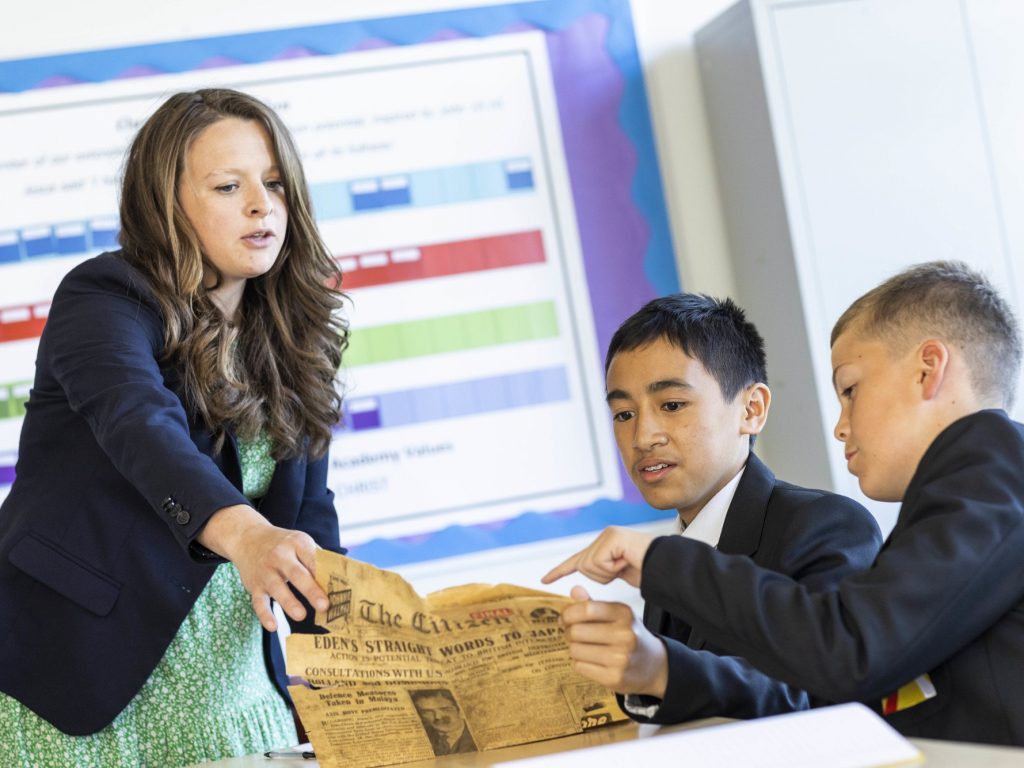
Our History curriculum has been designed to ensure that all students can excel academically whilst also supporting their personal, social, moral, spiritual and cultural development so that they can live life in all of its fullness.
The History department aims to empower students with the knowledge and skills to learn about and question the world around them, guided by a deep knowledge of past events and concepts. Students study key historical events through the lens of disciplinary concepts such as change and continuity, causation, and consequence, developing the ability to analyse trends, create accounts and frame historical questions and arguments. The skills of source analysis and the evaluation of interpretations are at the forefront of our practice to equip students with strong critical thinking skills, preparing them well for the challenges of the modern world.
The curriculum has been designed to ensure it is inclusive and challenging for all students, with a focus on diversifying the curriculum in order to highlight the contributions and experiences of previously underrepresented groups in History. The curriculum also enables students to gain a historical perspective of the connections between local, national and global history while addressing commonly held misconceptions. Throughout the teaching of the curriculum the Academy’s vision and values are apparent. All staff are incredibly passionate about their subject and put the student at the centre of the learning, keeping up to date with recent developments in the subject to ensure that all students are supported and thrive within the subject.
At Key Stage 3 students’ follow a chronological curriculum starting in 1066 and ending in the 20th century. A broad range of topics are covered, with case studies included for each time period. There is an academic approach; seeing students engage in historical debates, interpreting and analysing primary sources and forming historical judgements, chosen appropriately for their ability band. Throughout the year students also make comparisons to what other areas in the world are like during the time period that they are studying
The GCSE curriculum follows the Edexcel programme. All students gain a clear understanding of chosen depth studies and thematic studies, for example students study the thematic study of Medicine in Britain and a Depth Study of Early Elizabethan England. Students also build upon their historical skills developed at KS3.
The Key stage 5 curriculum follows the OCR programme, giving students the opportunity to develop their historical skills and understanding further from their Key stage 3 and Key stage 4 study. The topics of study are chosen to give students a breadth of knowledge across a wide timescale and global history. The NEA component allows students to deepen their understanding of a topic of personal interest and develops many transferable skills. This curriculum prepares students for their next steps post 16 whether that is university study or employment.
The curriculum is divided into Learning Cycles across the year. They have pre-defined discrete knowledge content which is shared in a Knowledge Organiser at the start of each cycle. The cycle will include class teaching and independent home study followed by a week of revision and assessment and a further week of consolidation and extension teaching in response to the cycle assessment outcomes. The development of skills is built in to these cycles of learning, as well as the development of literacy and the Academy’s values. The development of the department pedagogical approach is a priority and is regularly discussed and reviewed.
The History department provides high quality teaching and learning at every key stage. We have a consistent approach to learning and assessments throughout the team and work collaboratively to ensure the best practice is shared. There are regular discussions surrounding pedagogy and approaches with classroom practice. Formative and summative assessments are carried out regularly. The results of these assessments are reviewed and analysed by all within the department to identify progress and areas of development.
Outcomes at GCSE and A Level demonstrate that students make good progress and we are very proud that a number of students choose to continue studying History or related degrees.
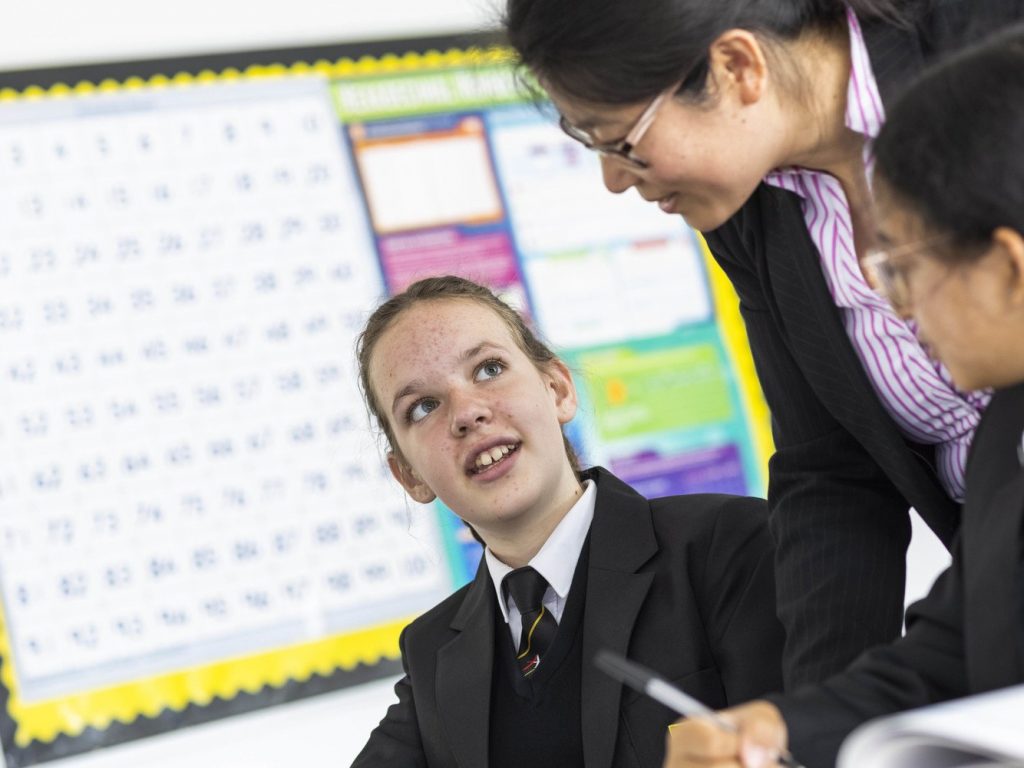
Our Mathematics curriculum sets out to achieve the following aims. Students will:
Our curriculum is designed to give teachers the resources, training and time to:
Through teaching approach and use of relevant and current resources, we will encourage our own developed model of 5 key thinking skills for success in Mathematics. As well as being taught to read, write and talk about Mathematics with confidence and fluency, our students will learn to think: critically; curiously; creatively; collaboratively; computationally. We believe that these skills will inspire confidence in our students to take on the many types of challenge that formal assessment questions pose and, therefore, improve the chance for examination success.
We understand that students do not make confident progress in Mathematics if they have not secured the foundational prior knowledge necessary for more advanced skills later in the course. Students who carry mathematical miscomprehensions carry a burden which prevents them from enjoying long term success in Mathematics and our curriculum aims to ensure that no student is left behind.
Our students will learn that Mathematics is more than a subject at school but a language and a tool that they can apply with confidence to their lives and their work and careers in the future.
All new students entering Year 7 commence study of our Mastery Mathematics course, which is based on the empirically proven Shanghai approach. All year 7, 8 and 9 students follow the same course at the same pace, with each class teacher using differentiated resources to allow for variance
in learner ability and profile within a class and ensure that the individual needs of the learner are met. All Year 7 – 9 students study a core range of topics from the Key Stage 3 National Curriculum. At the start of year 10, students are set based on ability and historical achievement so that their focus for the completion of Key Stage 4 is streamlined and focused for success in the Foundation and Higher OCR GCSE courses.
In line with Academy curriculum design, we follow a 3-Cycle format of approximately 10 teaching weeks followed by two weeks of revision, assessment and reflection and consolidation. We recognise the power of students learning to organise their thinking and learning (metacognition) and so use the cycle structure to underline and develop these skills. We teach the students to complete a Question Level Analysis of each of their assessments giving them personalised data on their understanding and miscomprehension of subject content.
At Key Stage 5, we assess regularly giving the students a low-stakes assessment approximately every three weeks. Alongside these assessments, the students have a homework task book for weekly practice.
The quality of teaching within the department is strong. We have developed a consistent approach to learning, assessments and student reflection and collaborate and communicate effectively to share best practice. We regularly review ourselves against the teaching standards to minimise complacency and instil a culture of consistent improvement.
We have broadened the scope of our teaching and learning at Key Stage 3 with a growing number of mini Mathematical projects. These projects aim to contextualise Mathematics for our students and offer a rich opportunity for cross-curricular foci. For example, the Shower Save project challenges the students to consider their personal impact on the environment, the related engineering aspects of supplying water and collecting waste water to and from homes. More STEM-related projects are in the planning, enabling students to see the real-world value of Mathematics and how it integrates across the wider curriculum.
Our students value the challenge offered by the UKMT Mathematics Challenge. 150 students across year 7 and 8 entered the Junior Challenge and 30 students entered the Intermediate Challenge. In both challenges, around 10% of participants achieved a Bronze or Silver Award. The UKMT Maths Challenges promote the pursuit of mathematical problem-solving, improvement in which is beginning to show through in the way students tackle more challenging questions requiring a deeper level of thought and consideration.
Our excellent teaching at Key Stage 3 and Key Stage 4 has led to the Academy’s best ever Mathematics GCSE results in 2023 with the highest Progress 8 score ever achieved of +0.2 and 65.7%
of students achieving Grade 4-9, above the national average for the first time. Furthermore, 13.5% of students achieved Grades 7-9, another Academy record. This improved engagement has led to success at Key Stage 5, A’ Level Mathematics. In the past few years, students have achieved the top grade, and some have progressed to study mathematics-related subjects at university. The developing depth of curriculum in Key Stage 3 and 4 has encouraged more students to want to pursue Mathematics at a higher level and thus we are able to offer Further Mathematics to students.
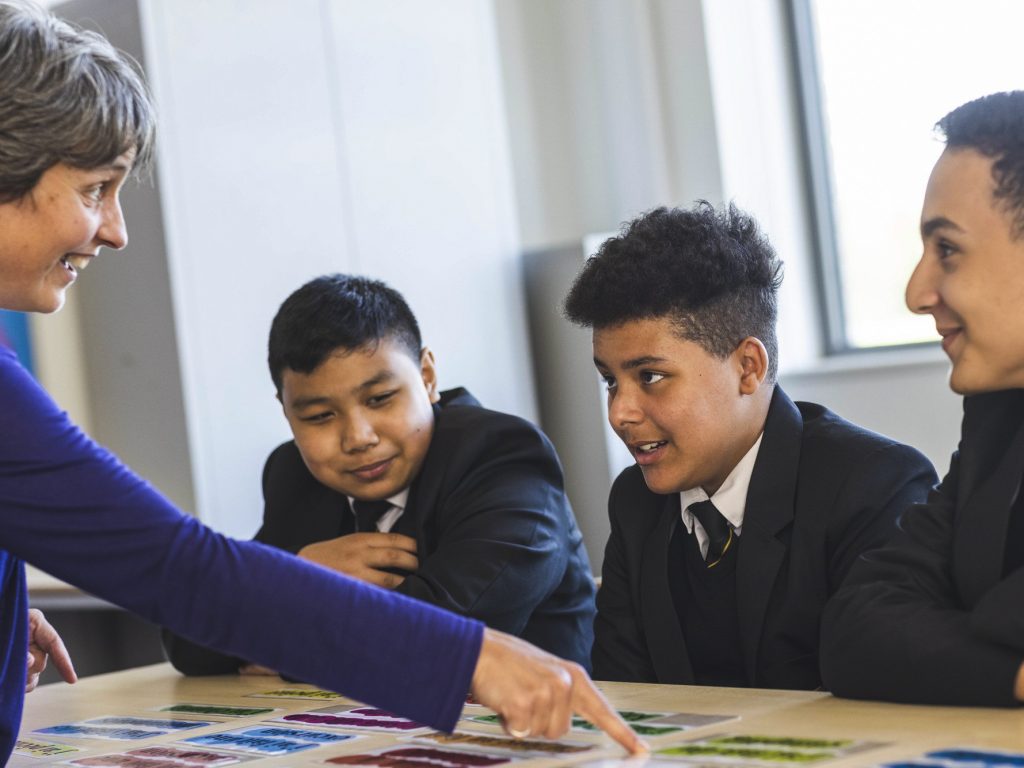
We believe that learning a language is an invaluable skill, which helps develop communication skills, self-confidence and a different way to look at the world through others’ eyes. It is a life skill, which is valued by employers and which teaches resilience, adaptability, tolerance and instils a degree of awareness and understanding of other people’s opinions and different cultures. Our vision is thus closely interwoven with that of the Academy, with a clear focus on realising the students’ potential and having ‘life in all its fullness’ through developing strong communication skills, a curiosity regarding the language and culture of other countries and deepen their understanding of the world around them.
The curriculum for Modern Foreign Languages aims to ensure that students:
Speaking is prioritised within the Modern Foreign Languages curriculum as a means of building strong communication skills and as a basis upon which writing skills can then be developed. Our curriculum is shaped by our Academy vision, inspired by John 10:10, so from Year 7, students are immersed in a range of topics which provide them with the opportunity to express their ideas on both personal and factual subjects but also challenge them to learn about more difficult and intricate issues. This breadth of study at Key Stage 3 has been chosen to foster a linguistically rich environment of communication and self-expression, in line with the core values of the Academy, as well as providing the groundwork for the topics studied at Key Stage 4.
We thrive for the students to develop a sense of curiosity about how languages function and to foster a thirst for more knowledge. The wide range of topics covered and original materials used ensures that the curriculum maximises students’ progress by offering challenges for the more able and support for pupils who need it and the SEND pupils. We build on the knowledge acquired from the learning in Key Stage 2, and we intend in our curriculum design to ensure that all students are able to access their lessons and also be sufficiently challenged by them. Our focus on repetition of knowledge and practising exam skills is intended to support all students in making good progress.
We aim to raise the pupils’ interest to take both languages for GCSE to expand their understanding of languages, grammar and culture for both languages. We are keen for the students to study and learn either language in another country or use their language skills for practical purposes or as a skill to be used in a job.
Each year of the curriculum is linked to the previous year in order to revisit and consolidate prior knowledge of grammar and vocabulary. The topics are taught in a logical progression to allow the students to build on their current knowledge and to be able to reflect on their own linguistic progress. Students will use a range of skills in lessons to develop the four skills needed to achieve a high level of fluency in each language and required at GCSE: speaking, writing, reading and listening. The activities and the authentic material used in lessons help the students to become involved and develop their linguistic skills as well as their ideas. They are able, through carefully constructed activities, to expand their understanding of each language and develop their understanding of grammar and knowledge of vocabulary.
We review, assess and adapt the topics studied and learning materials used in order to ensure that lessons are relevant to the pupils and best fit their learning needs. A positive culture of ‘having go’ has been introduced in all lessons and at all levels, as well as reinforcing the concept that ‘anyone can learn a language at their own level’. We use spaced repetition of key topic vocabulary and grammar in order to support students in making long-term progress in their learning, thereby aiming to reduce the burden on students’ working memory in lessons. Students are therefore given time to practise and revise in lessons and for homework to promote a culture of learning to maximise retention of knowledge in the long-term memory. We place emphasis on students completing smaller chunks of revision more frequently in order to encourage students to form good habits as independent learners. A reward system has been introduced and students are encouraged to take part in competitions and regular cultural challenges to introduce an element of fun and something different for the students to have a go at.
Assimilation of knowledge is assessed with regular formative assessments, whether by the teacher or by peers. Summative assessments are completed regularly for each of the four language skills – writing, reading, listening and speaking – and students are encouraged to reflect on their own learning and progress through feedback on these assessments. Students are then encouraged to use this feedback to inform their independent revision, and are taught how to use their knowledge in different contexts and how to use and adapt what they already know to decipher new vocabulary and grammar.
We have a consistent approach to learning and collaborate as a department to ensure that we share best practice. We regularly discuss the outcome of lessons and use mutual feedback to inform future planning. Formative and summative assessments are carried out regularly. We review and scrutinise the results as a department with a view to determining areas upon which to make particular improvement.
The department is on track to help support students in achieving their potential and in applying the skills learnt in languages to higher education and future careers.
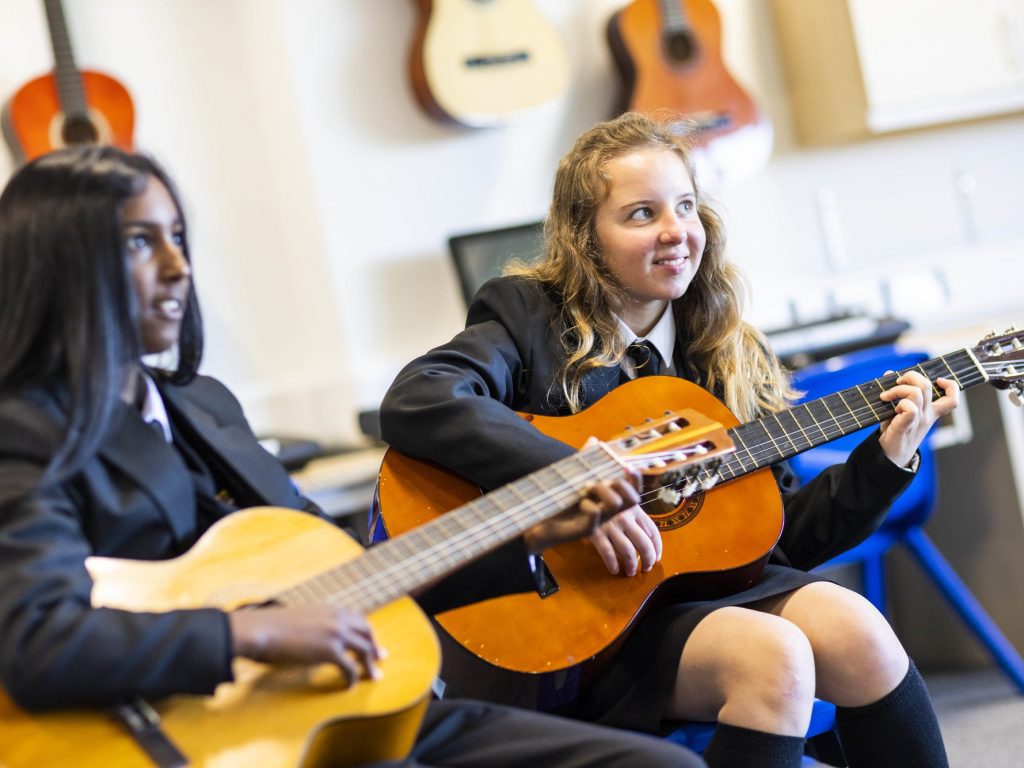
Musical education plays a central role in shaping our sense of personal, social, and cultural identity and, as such, enables students to learn to express themselves and gain the confidence needed to succeed in their education. In addition, learning music develops a wide variety of transferable skills and attributes including independence, confidence, perseverance, and creativity.
Our curriculum enables our students to be able to:
The objectives of our curriculum are met through the three core skills of Performing, Composing, and Listening and Appraising Music. All Cycles of Work aim to include these three core skills and include activities which enable students to work on their own, in pairs and small ensembles.
Alongside our classroom teaching, Music forms an important part of Academy life. Students have an enriched curriculum through a vibrant collection of musical ensembles, in conjunction with our Performing Arts Faculty, which we believe offer opportunities to a wide range of students, allowing them to collaborate with other musicians and thus develop their performance skills, understanding and love of the subject.
We endeavour to expose our students to live music including visits to the theatre and concerts. All students involved in music are given regular opportunities to perform in front of others, both as individuals and with various groups.
The Academy’s Vision has helped shape the Music curriculum choices. In topics such as Folk Music and Blues at Key Stage 3, we explore the Moral, Social and Ethical aspects of different cultures and the historical context of Music; whilst at Key Stages 4 and 5, students are encouraged to achieve their God-given potential through specialising in Performance and Composition.
At Key Stage 3, Music is taught in mixed-ability groupings as part of a blended Performing Arts curriculum. We lay down the core skills and knowledge which underpin all Music-making through performance, composition and listening. Each Cycle requires new skills, such as greater instrumental dexterity or expression or new knowledge, such as further theoretical understanding of varying musical styles, and gives students the time and space to explore their creativity, independence, and self-awareness.
In accordance with the National Curriculum for Music, students refine their skills through composing, performing, and appraising with a focus on strengthening their keyboard technical skills. There are additional opportunities for students to play guitar, bass guitar, drums and a wide range of instruments during Music lessons and in extra-curricular groups such as After-Academy Rock band, our whole academy ‘One Body Choir’ and Keyboard Club. Disadvantaged students are supported through a bursary system and are actively encouraged to engage with individual Peripatetic instrument lessons.
Each piece of music chosen to study through performance or listening adds to the student’s cultural capital. We carefully choose a wide range of music from a range of cultures, traditions and countries, ranging from the Baroque period to the present day. We are aware of the historical importance of the local area and highlight local great composers such as Gustav Holst, musicals composer and performer Richard O’Brien and pop artists such as Brian Jones, founder of the Rolling Stones.
Key Stage 3 forms the foundation of knowledge and skills which are required for the step up to GCSE standard whilst complimenting their drama learning at the same time. By the end of Year 9, students have experience with all the fundamental building blocks of music, and so in GCSE, they can use these blocks to build better compositions, more intricate performances and listening analysis with greater use of specific musical language.
In Key Stage 4, students learn four key areas of study and build their knowledge of these, whilst reinforcing their listening and evaluating skills. They start to work on their first composition in Year 10 and regularly perform in class to develop their performance skills ready to record their final performances in Year 11. In the second year, they complete their two compositions and deepen their knowledge of each of the areas of study, focussing on wider listening of the great composers and other pieces within the areas of study. During Year 10, students are encouraged to begin taking instrumental lessons, if they have not previously had lessons, and choose an instrument or voice to specialise in for their performance element.
At Key Stage 5, we offer an ambitious Level Music curriculum. Music A Level builds on the skills developed during Key Stage 3 and 4. Students are expected to complete two compositions and perform a recital in front of a visiting examiner. Students are provided key work-related learning opportunities through visits to Royal Symphony Halls and Studios.
Literacy and numeracy play an important part in all Key Stages. From Year 7, students are expected to describe music using the Elements of Music using full sentences and using a range of musical vocabulary. As their learning develops, students must consider the Composer’s intentions and describe how the music portrays a scene, emotion, character, or atmosphere. For GCSE and A Level, students are encouraged to write a musical academic essay in their final listening and appraising exam. In all Key Stages, students are expected to reflect on class performances and compositions using full sentences as they assess their successes and how to improve.
Music is intrinsically linked to numeracy and students need to be able to understand note values, simple ratios and sequences when performing and composing music. As students progress, they need to understand more complex musical patterns, and phrases and understand how tempo is used about beats per minute.
In all areas of teaching, we apply the academy Principals of Teaching to strengthen students’ ability to retain and recall subject knowledge and important information. We encourage deeper learning through recall quizzes and retrieval listening tests. This is heavily supported in our curriculum with the use of our Curriculum Organisers to further develop their recalling and recapping of their learning. Our Music curriculum interlinks prior learning at every opportunity to consistently develop their learning and encourage deeper questioning in the subject.
Our cycle assessments are based on the Academy assessment model. At Key Stage 3, all Performance and Composition tasks are linked to the academy assessment levels of developing, achieving, and exceeding. Each cycle of learning has a clear set of measurable learning outcomes that assess the application of their technical skills. In Key Stage 4, students are provided with a copy of the criteria for both Performance and Composition at the start of the course so they can become familiar with the terminology and assessment criteria. Listening tests are completed as part of each cycle to ensure students are familiar with this aspect of the course.
Students will have engaged in an enriched Music curriculum and will have:
Previously, students have been involved in the biggest whole ensemble singing concert in the world, “Voice in a Million”, at Wembley Arena. We have organised composing and lyric writing workshops with Cheltenham Festival and initiated a cross-community choir with local primary Academies and community groups from the surrounding area called “Across the Sky”. The Performing Arts Faculty provides students with these opportunities to allow students to raise their aspirations and connect with like-minded people across the world.
Our successful Academy Choir has been invited to sing at events around the local area including singing in Gloucester Cathedral, at the Inauguration of the first female Diocesan Bishop, and the Holocaust Memorial event at the Cheltenham Municipal Chambers. Students benefit from the spiritual growth of giving back to the local community by Carolling in Care Homes at Christmas. In conjunction with the Performing Arts Faculty, students have performed in large-scale musicals including Les Misérables, Mary Poppins, Into the Woods and We Will Rock You which are exciting showcases that bring together students from Year 7 right through to Year 13.
Music could lead to a practical career in performing, songwriting, or composing – particularly in the TV, Film and Video Game industries. There are technical routes into producing or sound engineering, with talented individuals based in studios or on tour. Music enables students to demonstrate many transferable skills which employers, colleges and universities are looking for. The level of dedication and resilience required to learn an instrument or be part of a musical ensemble is an extremely desirable quality for a future employer. Alumni of the school have gone on to study Music, Musical Theatre and other Performing Arts courses at University and Music College.
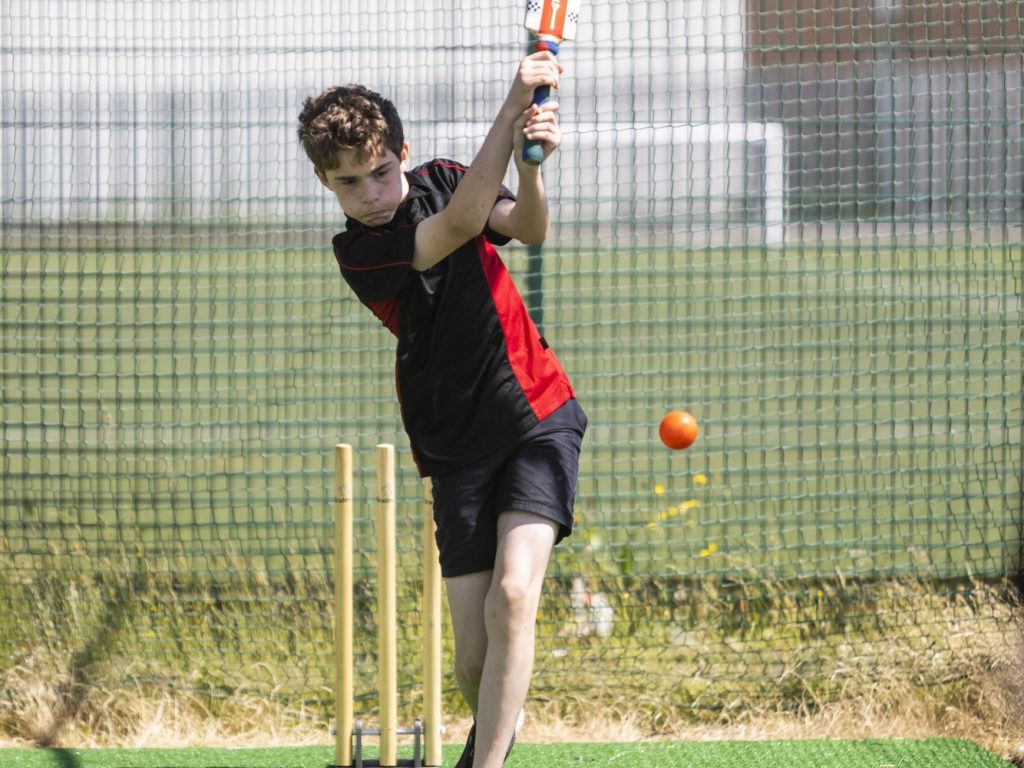
Our Vision, Where every member of our extended family realises their God-given potential, inspired by John 10:10. Jesus said, “I have come so you may have Life in all its fullness,” is the lens through which we ensure that every member of our extended family realise their God-given potential through a broad curriculum that meets the individual needs of all our students.
We have developed our PE vision in line with the Academy vision and the aims of the National curriculum so that we can develop competent athletes to excel in a broad range of physical activities. Our students are physically active for sustained periods and understand the importance of physical activity. We were mindful that our learners also need to engage in competitive sports and activities that lead to healthy and active lives. Additionally, we want to enhance and develop leadership skills through the years to build confidence, resilience, initiative and the ability to motivate others.
Lessons allow us the cover a range of strands to develop the learners, an example of these is: that we develop a range of tactics and strategies through competition e.g. games and individual sports, alongside this we develop technique, physical confidence, leadership skills and the ability to analyse performance.
The course in Key Stage 5 follows the skills developed in both BTEC Tech Award Level 2 Sport and the GCSE courses that are taught at Key Stage 4. We teach the BTEC level 3 sport we offer the foundation diploma (1.5 A levels). The course deepens the learning. There are 2 exams, 1 compulsory coursework unit and 4 optional units. The optional units we pick we feel are the correct ones to extend and develop the learning which enables the learners to develop their skills for employability.
For Key Stage 3 and 4 we teach the National curriculum and offer a broad range of both team and individual activities. Students are grouped on ability from arriving at the Academy. We complete an assessment week for Year 7. These groupings continue through the years and are flexible allowing movement where students progress. The curriculum is developed to suit the groups and can be adaptive to allow for bespoke planning matched to the group’s level and the best way to progress. The Sports we offer are taught in 6-week or 7-week blocks, these longer blocks and similar activities taught through the years help us build knowledge, skills and gameplay with an assessment at the end of the activity block. We assess the learners in a variety of strands after each block of activity and these are recorded in booklets. The learners self-assess, make personal targets to develop their skills.
In KS4 we also offer both GCSE PE and Btec Sport. We have recently begun teaching the Btec tech award in sport, there are 5 lessons over the 2 weeks, alongside the 4 practical core PE lessons . The Btec qualification allows our learners to be inclusively involved in sports in various ways, such as a coach, a referee and a player, these develop from the skills taught KS3. The exam unit allows for a greater understanding of fitness for sport and exercise, it gives in-depth learning about the correct way to train and how to develop sporting performance and then finishes with being able to test levels client’s fitness levels. The BTEC sport courses are fully assessed regularly in line with the course requirements. Trackers are kept by the teachers and the assessment grades are an accumulative outcome from the units and the exams and coursework.
In GCSE PE , the same amount of lesson time is given to this course. Through the years the learners develop their knowledge further both academically and practically. We follow the Academy’s learning cycles and complete regular assessment and review weeks to consolidate learning, before moving on. A variety of sports are selected and taught over the years, learners will be assessed and analyse their performance in all of these sports and the highest scoring sports will be taken forward as part of their final grade.
In Key Stage 5 Btec sport level 3 we start by teaching the 2 compulsory exam units, those exams are sat in January, consolidation of learning is evident through the units and exam questions are regularly set and the learning is revisited. We then complete the final compulsory unit, which is a coursework unit, this unit allows students to develop their employability skills by creating a CV, taking part in interviews and applying for a job, all real and important life skills. There are four additional optional units to teach. The optional units selected are those we feel contribute to the learner’s holistic education and deepen their prior learning from Key Stage 4 and again link in with developing employability skills, such as Unit 5 which develops the skills required to become a Personal Trainer or Sports Coach.
Students have developed their knowledge and skills through a variety of assessment strands to allow for a holistic grading in various team and individual sports. Assessment is dated, so progression is evident and personalised, allowing them to make targets for further improvement. The curriculum plan is very stable and the department is very experienced so engagement in lessons is high, which is also highlighted in our self-evaluation. Lastly, levels of participation within after Academy clubs are good, showing an interest in Football, Netball and Rounders, which builds on their competitive skills, teamwork, tactics, and strategies, alongside lifelong participation in sports.
From the BTEC tech award course, students develop an understanding of how to plan and lead warmups, investigating various sports provisions, planning sports drills and sessions, lastly fitness for sport. The learner’s complete assessments through each year, two coursework and one exam. These is a sample of ten pieces of coursework selected and uploaded onto the Pearson website for external verification.
GCSE PE learners have a detailed understanding of the theory side of the course in anatomy and physiology, sports psychology, health fitness and well-being, socio-cultural influences, and data analysis. Plus, a range of practical performances in team and individual sports; developing decision-making skills, applying correct technique, problem-solving decisions under pressure, psychological control, adhering to rules and regulations and analysing and evaluating performance. Learners complete a tool kit that covers all learning outcomes and this is reflected upon after each assessment cycle. Learners make an individual target to develop their knowledge in the bespoke areas that they didn’t score so highly in while recognising their strengths.
The Btec level 3 units help to prepare our learners for the next step of higher education or work placement, which is evident from previous learners who have gone to University or worked with local sport development groups. Level 3 learners develop an understanding of a wide range of key areas such as nutrition, anatomy and physiology, lifestyle choices, fitness planning and programming, fitness testing, leadership skills, and individual and team sports development.
Various personal skills are developed over the PE curriculum such as teamwork, communication, organisation, independent working, collaboration, adaptability, time management skills, decision making and empathy.
In the PE department, we review the curriculum plan, combine resources, moderate, monitor work and work as a team to continually improve our outcomes to able students to follow the Academy vision to allow students and staff to “live life in all its fullness” and to develop a lifelong learning and a love of sport.
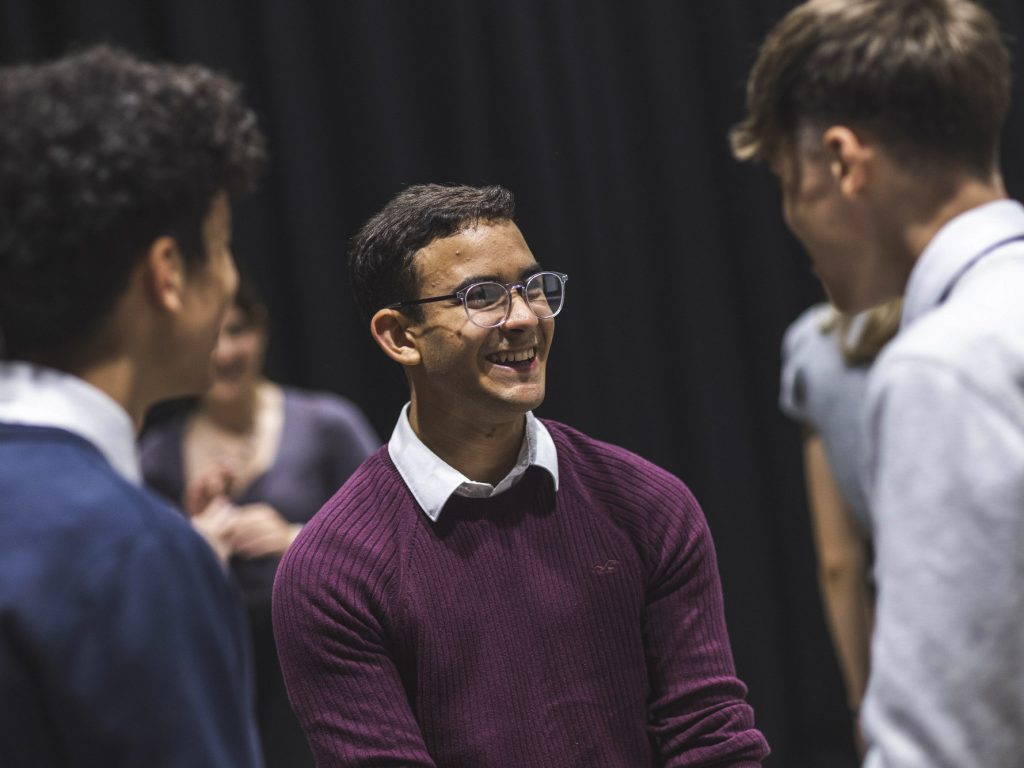
In Psychology, the department aims to teach and encourage students to ask questions about the mind and behaviour. Students need to be analytical and critical of research that they cover in their specification. The study of Psychology and its concepts allows students to construct arguments and supports them in becoming analytical thinkers who can question human motivation and behaviour. Students should feel confident in applying the skills taught and be enthusiastic practitioners looking to pursue a career or University course in the subject. This course looks to maximise the full potential of each student and provides opportunity for self-reflection and evaluation throughout.
The Key stage 5 curriculum in Psychology is characterised by key skills and questions throughout the topics covered. Given the more demanding nature of this A Level course, there is an expectation for all key questions to be answered within a cycle. For example in Year 12 Cycle 3, students are required to answer all of the following questions: ‘should we conform to fit in? Are we responsible for our behavior? How can a minority influence a majority to change the world for the better?’ In order to answer these key questions students must be able to demonstrate knowledge and understanding of psychological theories on conformity and obedience etc., apply psychological theories, approaches and evidence to the key questions and analyse and evaluate psychological theories, approaches and evidence in order to present arguments, make judgements and draw conclusions, all of which are the key skills for this course. This deeper level of understanding is required to ensure that all students are prepared for the next phase of their careers– whether this be directly into a job role, further training or University.
The Psychology department currently delivers the AQA specification at A Level. This qualification is designed to offer students the opportunity to experience a broad range of topic areas from a variety of psychological perspectives and approaches.
Psychology is an option subject and as a result students with a range of abilities will be in the same class. The department follows the Academy’s structure of cycles and mock examinations are used throughout the year to assess progress, in line with the Academy’s assessment calendar.
The department is committed to the Academy’s teaching principles and regularly attends the teaching and learning briefings, as well as contributing to various topics within these briefings throughout the academic year. Within the lessons, students are taught using a variety of means including the use of lesson PowerPoints, group discussions, independent study and research, case study application and mock examinations.
Students are also provided the opportunity to increase their cultural capital via the use of extra-curricular activities throughout Key Stage 5. During Cycle 4, Year 12 students are able to attend a Social Sciences festival at the University of Gloucestershire which encourages students to begin to think about the future career paths and potential University courses. This visit will also aid with the writing of UCAS applications and provide valuable insight into the expectations of studying a Psychology related degree at University. The Psychology department has also attended the Cheltenham Science Festival, resulting in students being the beneficiaries of a talk about the latest research developments in crime. This experience has direct links to the key questions in Year 12 Cycle 3, as above, and Year 12 Cycle 4 including ‘can we trust research?’
Students are monitored regularly and student work and achievement is assessed, reviewed and tracked at least twice a cycle. Students are then provided with the opportunity to amend, adapt or resubmit work in accordance with the Academy’s assessment policy. Assessment provides students opportunities to identify areas of improvement by themselves and encourages self-reflective and motivated learners. Academic results within the department are progressing well, with positive value-added scores becoming the norm.
Outside of traditional progress measures, the department is successful in its impact on chosen careers of students. Many students at Key stage 5 go on to study a Psychology related course at University or secure a job role relating to the subject after completion of the A Level. For example, since 2017, 2 Psychology alumni have gone on to study Law and Criminology at University, 8 have gone on to study Psychology and 3 have gone on to study Forensic Psychology. Students are empowered to achieve these goals due to their successful acquisition of the key skills throughout the Psychology curriculum.
The impact of our Academy Vision, and Christian values within the Psychology curriculum results in students feeling happy and equipped to express themselves as individuals, have confidence in celebrating their successes and support one another through the challenges they face or may face in the 21st century.
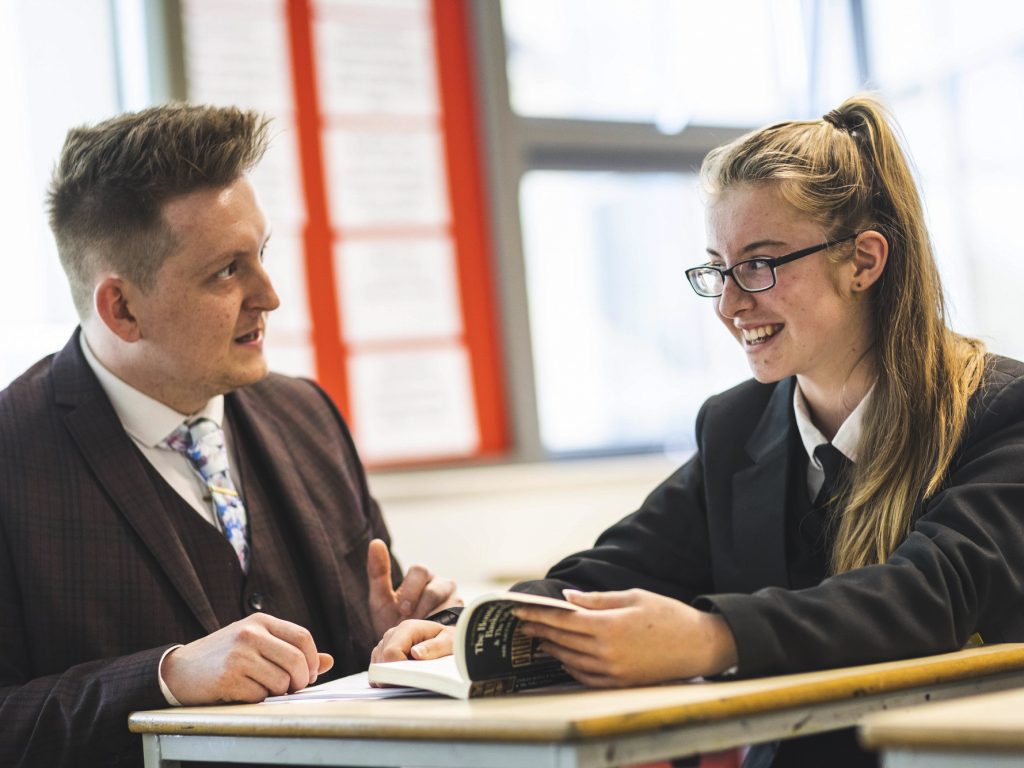
Where every member of our extended family realises their God-given potential, inspired by John 10;10. Jesus said, “ I have come so you may have life in all its fullness”
When designing the curriculum for all Key Stages, we had our Academy Vision, “ I have come so you may have life in all its fullness”, firmly rooted in our mind. The choices we made for all Key stages are linked to the Gloucestershire agreed syllabus, but we were mindful that we had more hours than many schools and we wanted pupils to be able to flourish in their individuality, in addition to learning about how to tackle discrimination in any form.
We have established a safe environment for debate rooted in a Christian ideal of “love thy neighbour” allowing everybody to play their part, safe in the knowledge that they are able to flourish and develop their own opinions and understanding of world religions in addition to exploring the challenges each of us faces as we learn to reach our potential. Thus allowing time for courageous advocacy through debate, tackling issues of morality and ethical dilemmas relating from such diverse issues such as human sexuality to euthanasia.
In addition we have enhanced skills for literacy, by incorporating peer teaching and review through the use of presentations and speeches. We ensure that all lessons and schemes of work are adapted and are reflective of the needs of all learners, whatever their SEND need or whatever their background. Nothing prevents pupils from accessing all elements of our curriculum.
Lessons are scaffolded in such a way that skills are built enabling all pupils to have full access to the GCSE in Year 11. This scaffolding and skills building allow pupils to build confidence in their ability, making them more resilient as learners and therefore prepared to give anything a go.
In addition, we have prepared pupils for Key Stage 4 whilst in Key Stage 3, as a consequence all assessments that work on building skills needed for GCSE, enabling all pupils to fulfil their potential in the GCSE.
From Key Stage 3 onwards we teach the knowledge needed to fulfil the requirements stipulated in the Core curriculum and suggested by NATRE. In essence we follow many of the SACRE guidelines for the Gloucestershire Diocese however, we are fortunate to be able to offer more than the recommended minimum allocation of Religious Education, and as a consequence we have included other topics that we feel will benefit the pupils here at the Academy.
We have curriculum maps that show both knowledge and skills building linked to all world religions, preparing students for future study. These curriculum maps are adaptive to all ability levels and the skills needed at each stage are demonstrated for teachers to see how progression can be gained from Year 7 on to a strong transition to Key Stage 4.
We build on knowledge learnt by regular re-capping of work from previous lessons and cycles, in addition to exam style practice under exam conditions in all key stages; this builds resilience and expertise in addition to confidence. We have end of cycle assessments followed by consolidation and improvement lessons to build upon gained skills as well as knowledge and rectifying misconceptions. This is planned in detail and teachers have access to Programmes of Study and Schemes of Work in addition to centrally based resources, including power-points, text books, and clips. This is also made available on our online learning platform (Teams) so that should pupils have the need to work remotely they are not excluded in anyway.
Within each key stage we allocate time for pupils to learn independently through flip learning strategies, that may include research on a particular issue, such as the climate change, or equality. The pupils then present their findings and are assessed by their peers, not just on research content but on content presentation and oracy.
In order to support revision and exam preparation we have various intervention sessions, varying from 1-2-1 through to whole class sessions or Year Group walking talking mocks in order to build exam skills. We also attend Vardy Conferences for Edexcel helped at Cheltenham College, and these have proved very popular during non-COVID times.
We encourage literacy skills through comprehension tasks, often using complicated language and subject specific words, in addition we use text books, the internet and other resources such as podcasts and YouTube. We also encourage pupils to understand how to be examiners, and to have confidence in marking peer work through oral review, developing speaking and listening skills.
We encourage debate and tackle controversial issues, such as discrimination and stereotyping. Helping pupils to dismiss misconceptions in relation to race or religion. Pupils can do this in a safe environment, and build confidence in participating in a debate that may even challenge taught beliefs from upbringing in relation to refugees or asylum seekers for example.
Pupils have detailed knowledge of the areas needed for progression and associated accomplishment at the end of each key stage and our average point score in Key Stage 3 is increasing. We achieve in line with the national average at GCSE, and this is particularly good as unlike the majority of schools, we offer the GCSE to the whole cohort rather than as an option subject.
Pupils have an understanding of their place of faith in the world, and what the impact of an individual’s faith has upon their daily practice. Pupils know festivals such as Ramadan and how British Muslims, or Hindus during Diwali respond to these festivals. They also know that this does not detract from the Britishness of an individual.
Religion and Ethics Ks3 Curriculum
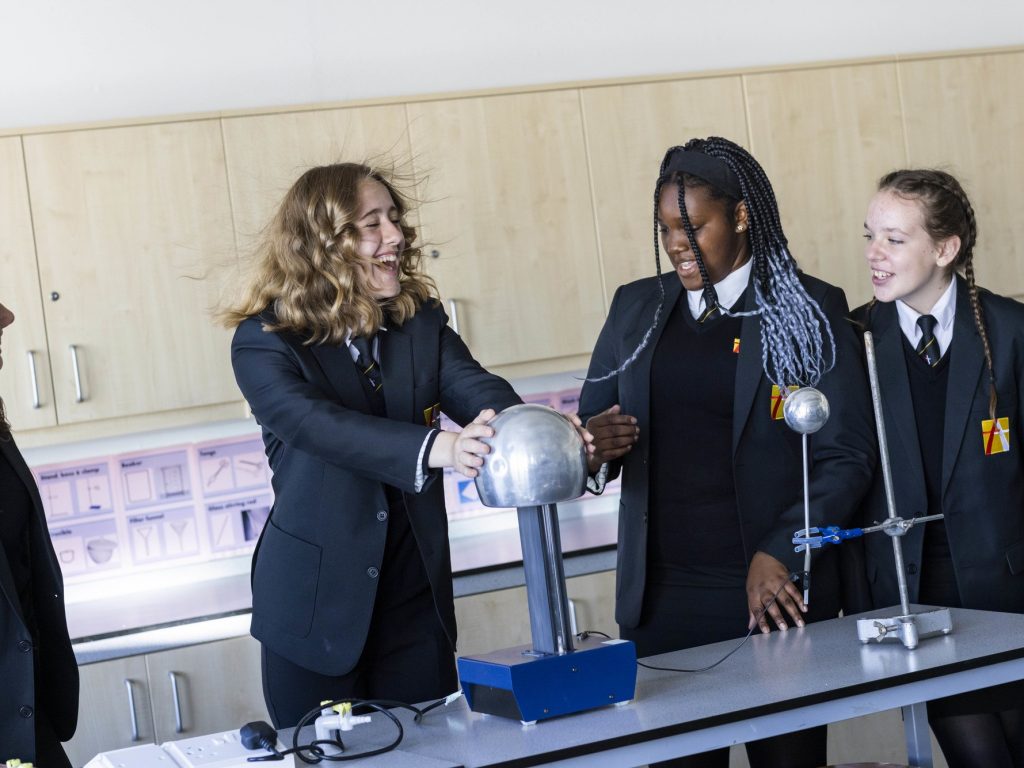
We have embedded the Academy vision within our Science Faculty vision.
‘To provide students with an outstanding education in biology, chemistry and physics and help students aspire to study Science in the future, and contribute to meaningful change in the world’.
The basis of the Scientific Method is to find a problem and try to solve it. This involves making mistakes and critically, the ability to learn from these mistakes. This is a fundamental skill that is at the centre of our teaching philosophy in Science.
Our Key Stage 3 curriculum is designed to:
Our GCSE curriculum is designed to:
Our A Level curriculum includes Biology, Chemistry and Physics that is designed to:
As a faculty team, we enrich our teaching further with links to careers, links to everyday life and provide STEM events with outside agencies and our partnership with Cheltenham College. Fundamental values that we hold dear in Science are inclusivity and ambition. We see that Science is a pathway for all students to study. Any potential barriers (including SEND) are dealt with effectively so that all can make outstanding progress and develop key skills that students are fluent in, to give ‘life in all its fullness’.
Our teachers provide creative, coherent and personal lessons to our students all rooted in our researched teaching model. This model includes fact recall starters, inspiring teaching and effective modelling of concepts or modelling of how to answer questions efficiently. We also build assessment opportunities so that students can demonstrate progress or make mistakes and learn from them. All of our lesson designs seek to help the student remember and apply content and information.
We have a rigorous assessment schedule, specifically designed to aid teachers with providing constructive feedback to allow students to progress and inform teaching. This also aids the students by providing quick and meaningful feedback to tackle misconceptions and errors.
We include mid-cycle assessments which are used formatively in addition to the end-of-cycle assessments. In Years 11, 12 and 13, as well as mocks, meaningful assessment tasks and/or exam questions are to be completed every lesson.
Our curriculum contains a well-organised remote learning provision, whether students are out of the Academy or revising from home, resources and information are available.
Outstanding subject knowledge from our teachers, bespoke lesson design and carefully designed assessment provide a safe space for challenging discussion, problem-solving and application of key information. We also commit to Scientific literacy, an essential ingredient to make informed life choices, through support with key vocabulary, support with structured writing and opportunities such as FameLab, a national STEM communication competition.
We frequently review our Science curriculum to ensure that knowledge and research are up to date, as well as ensuring that our teaching practice is effective in allowing students to make progress. To measure the impact of our curriculum, we frequently perform learning walks or observations to assess the quality of our teaching.
We record assessment data in clear trackers so that strengths, weaknesses and therefore gaps, can be quickly identified to inform teaching plans, revision cycles and intervention strategies to raise student attainment.
The number of students who are taking at least one A Level in Science is also increasing and we are successfully raising aspirations with the view to further study, employment or training in the Sciences, something we see as vital for a successful British culture and society.
Student outcomes have increased year on year, with the 2021 cohort continuing that improvement.
Science KS3 Curriculum Overview
Science KS4 Curriculum Overview
Biology KS5 Curriculum Overview
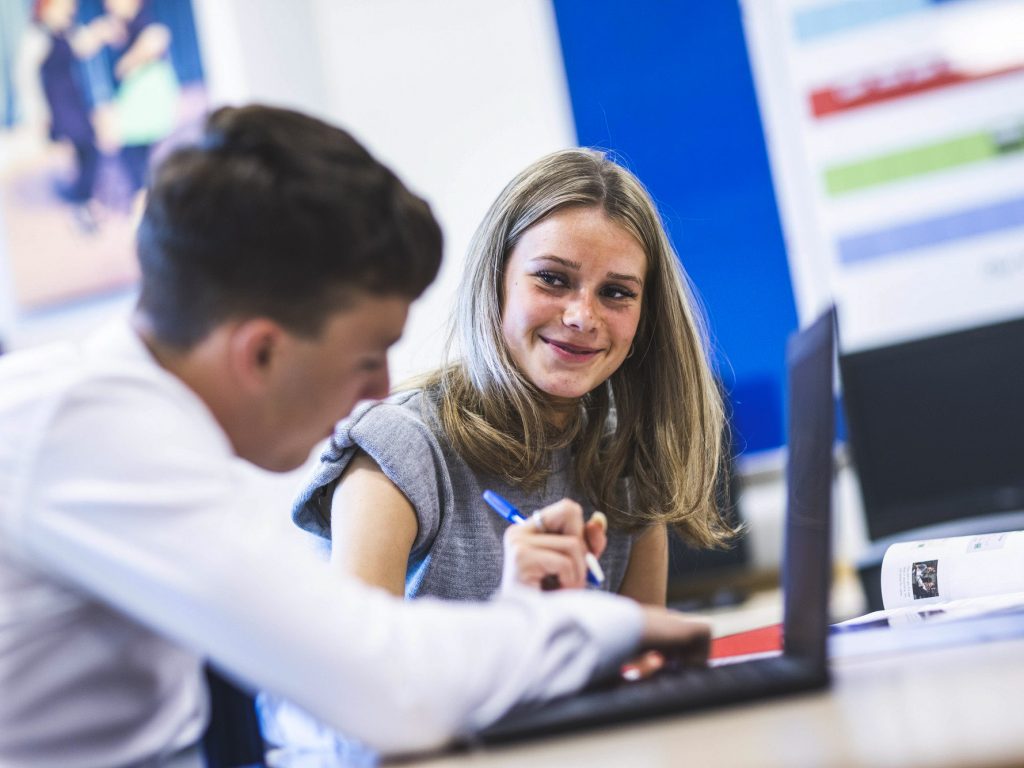
In sociology, the department aims to teach students to the top to ensure all students reach and fulfil their personal potential. This means, scaffolding the teaching and learning from top band concepts, but differentiating the processes of this enough to ensure all students have equal opportunity to learn the organic analogy of society. Students will evaluate each organ (institution) of the organic analogy such as Beliefs in Society, using sociological classical perspectives such as Functionalism and Marxism. Students will further evaluate using modern theory such as Postmodernism and Social Action theory to compare past and present way of viewing the global world. Students should feel confident in applying the skills taught and be enthusiastic practitioners looking to pursue a career or University course in the subject. This course looks to maximise the full potential of each student and provides opportunity for self-reflection and evaluation throughout.
The Key stage 5 curriculum in Sociology is characterised by key skills and questions throughout the topics covered. Given the more demanding nature of this A Level course, there is an expectation for all key questions to be answered within a cycle. For example in Year 13 Cycle 1, students are required to answer all of the following questions: How do we define religious beliefs? How are religious beliefs organised and categorised? What is the function of beliefs according to different sociological perspectives?’ In order to answer these key questions students must be able to demonstrate knowledge and understanding of sociological theories on beliefs, concepts, studies etc., apply sociological theories, concepts, evidence to the key questions and analyse and evaluate sociological theories, concepts, evidence in order to present arguments, make judgements and draw conclusions, all of which are the key skills for this cycle. This deeper level of understanding is required to ensure that all students are prepared for the next phase of their careers– whether this be directly into a job role, further training or University.
The Sociology department currently offers the AQA specification at A Level. This qualification is designed to offer students the opportunity to experience a broad range of topic areas from a variety of sociological perspectives.
Sociology is a Key Stage 5 only subject and a range of student abilities will be in the same class. The department follows the Academy’s structure of cycles and mock examinations are used throughout the year to assess progress, in line with the Academy’s assessment calendar.
The department is committed to the Academy’s teaching and learning principles and regularly attends the teaching and learning briefings, as well as contributing to various topics within these briefings throughout the academic year. Within the lessons, students are taught using a variety of means including the use of lesson PowerPoints, group discussions, independent study and research, case study application and mock examinations.
Students are also provided the opportunity to increase their cultural capital via the use of extra-curricular activities throughout Key Stage 5. During Year 13 Cycle 3, and whilst studying to answer the key questions ‘What is Crime and deviance? How crime is socially constructed? What is the cause/function of crime and deviance in society? What are formal and informal levels of social control? What factors affect criminal and deviant behaviour?’ Students attend Gloucester Crown Court. During Cycle 4, Year 12 students are also able to attend a Social Sciences festival at the University of Gloucestershire which encourages students to begin to think about the future career paths and potential University courses. This visit will also aid with the writing of UCAS applications and provide valuable insight into the expectations of studying a Sociology related degree at University.
Students are monitored regularly and student work and achievement is assessed, reviewed and tracked at least twice a cycle. Students are then provided with the opportunity to amend, adapt or resubmit work in accordance with the Academy’s assessment policy. Assessment provides students opportunities to identify areas of improvement by themselves and encourages self-reflective and motivated learners. Academic results within the department are strong, with positive Value added scores being the norm.
Outside of traditional progress measures, the department is successful in its impact on chosen careers of students. Many students at Key Stage 5 go on to study Sociology related courses at University or secure a job role relating to the subject after completion of the A Level. For example, since 2017, 4 Sociology alumni have gone on to study Social Work at University, 2 have gone on to study Law and Criminology and 3 have gone on to study Sociology. Students are empowered to achieve these goals due to their successful acquisition of the key skills throughout the Sociology curriculum.
The impact of our Academy Vision, and Christian values within the Sociology curriculum results in students feeling happy and equipped to express themselves as individuals, have confidence in celebrating their successes and support one another through the challenges they face or may face in the 21st century.
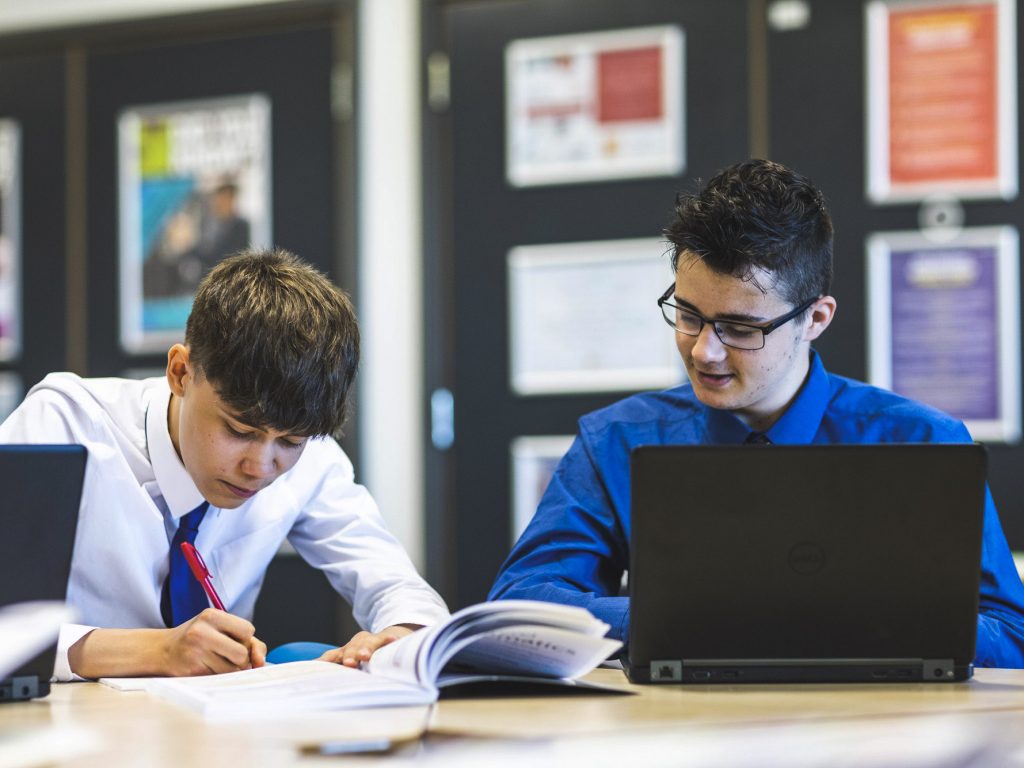
The Travel and Tourism curriculum allows students to realise their God-given potential. The curriculum is designed to engage students by developing their understanding of the Travel and Tourism industry and the importance of future employment opportunities. There are many opportunities within the Travel and Tourism curriculum to develop students’ cultural capital with investigations into a variety of cultures, the significance of a shrinking world as well as understand the importance of looking after the natural world. This sits alongside partnerships with local travel and tourism businesses to provide opportunities through workshops, trips and talks to develop a deeper understanding of the curriculum within the real-world context.
The Travel and Tourism course has been carefully designed to fulfil our vision. The planning of the courses highlights the core Christian values throughout the topics taught, the case studies used and the discussions within lessons. Students consider ethical and moral decisions made by organisations as well considering the ethical implications of dark tourism and the impact of tourism on locals. The Key Stage 5 qualification considers the sustainability and environmental impacts of how all different organisations run and the short, medium and long impacts looking after the natural environment all around us.
The Key stage 5 BTEC Extended Certificate in Travel and Tourism offers all students the opportunity to develop a holistic approach to the industry by investigating strategic and tactical decisions and how they affects the industry as well as considering how the industry responds to external factors.
At Key stage 5, all students can choose travel and tourism as a vocational pathway. This provides the students with the opportunity to develop their understanding of travel and tourism industry. This allows students to develop their understanding through an applied course, relating it to local, national and international businesses. The vocational pathway develops students’ interpersonal skills as well as independence and communication skills through completing coursework as well as sitting external examinations.
Students are offered enrichment activities through visits to visitor attractions, as well as local businesses and talks with professionals. These activities provide students the opportunity to develop their soft skills and relate them to the theory developed in the classroom to set up new businesses. It also allows students to gain a valuable insight into the opportunity for employment in the industry.
Literacy is embedded within travel and tourism. The Academy’s literacy policy is used to include reading and reading aloud, writing and speaking. Students are routinely expected to discuss and communicate their ideas of current affairs regarding the industry as well as develop their extended writing skills. Travel and Tourism also develops numeracy that includes teaching students’ specific mathematical concepts and providing them with the opportunities to select, use, evaluate and communicate mathematical ideas.
Students are expected to complete independent study on a weekly basis, which can include qualitative and qualitative exam questions. Students are required to conduct independent investigations into travel and tourism sectors, which will develop their cultural capital, their wider knowledge and understanding of the changing business environment.
Remote education is well integrated within the course and is something that all colleagues in the department are comfortable delivering. The sessions are well implemented and in line with what is happening in the classroom to avoid any students being disadvantaged by it.
The Academy’s Principles of Teaching is followed to plan and deliver engaging lessons, by considering the students’ needs including SEND. The curriculum ensures lessons are sequenced so students can use prior knowledge from previous teaching and learning cycles. The use of different questioning techniques on key knowledge is applied and students are routinely asked to recall previous knowledge as well as apply their knowledge to case studies. Scaffolding exam questions and modelling answers supports the development of writing and exam skills.
Using the teaching principles allows effective medium- and long-term planning for cycles 1-4, this allows sustained progress to be made. Each cycle is based upon a key focus which concludes with the assessment completed in assessment week. Each cycle also has a planned mid-cycle assessment to check progress intermittently during the cycle. The final week of each cycle is used to consolidate learning from earlier in the year to help students remember the longer term content ready for the external examinations in January. In the final term of each year, students will complete these examinations which will combine aspects of all the learning completed over the year.
Students’ knowledge of key concepts and business ideas is generally strong. This is due to the use of knowledge organisers in supporting students understanding of key terms for each cycle. The lessons are planned to include engaging activities based on assessment learning objectives and real-world situations. This alongside the revision for end of cycle assessments provides students with confidence in completing formative and summative assessment which results in students being are broadly in line with their target grades.
The travel and tourism curriculum naturally provides students with an opportunity to understand different employment and higher education opportunities, which is highlighted in the Wider World of Travel and Tourism unit of the course that allows students to understand the different pathways available to them.